The 50 best nonfiction books from the past 20 years
The best nonfiction of the past twenty years, all on one list.
Learn Literature Now
The best nonfiction of the past twenty years, all on one list.
Breville Espresso Machine![]()
The world of nonfiction is as vast as it is varied. Combining hard-hitting journalism with pioneering works of academia, while also leaving room for deeply personal memoirs and rich histories, this list is great for those seeking a new books to read for the upcoming spring and summer. The selections below represent the diversity of the nonfiction canon from the past 20 years, and I have been mindful of showing you variations of the genre. I hope you’ll find something here for you or for your friends and family, as every book is vastly different in its scope, topic, and perspective of this world. Please share and let us know what you think!
_____________________________________________________
Amazon Kindle Paperwhite with Special Offers, Wi-Fi, Black
_____________________________________________________
1. Anne Fadiman – The Spirit Catches You and You Fall Down (1997)
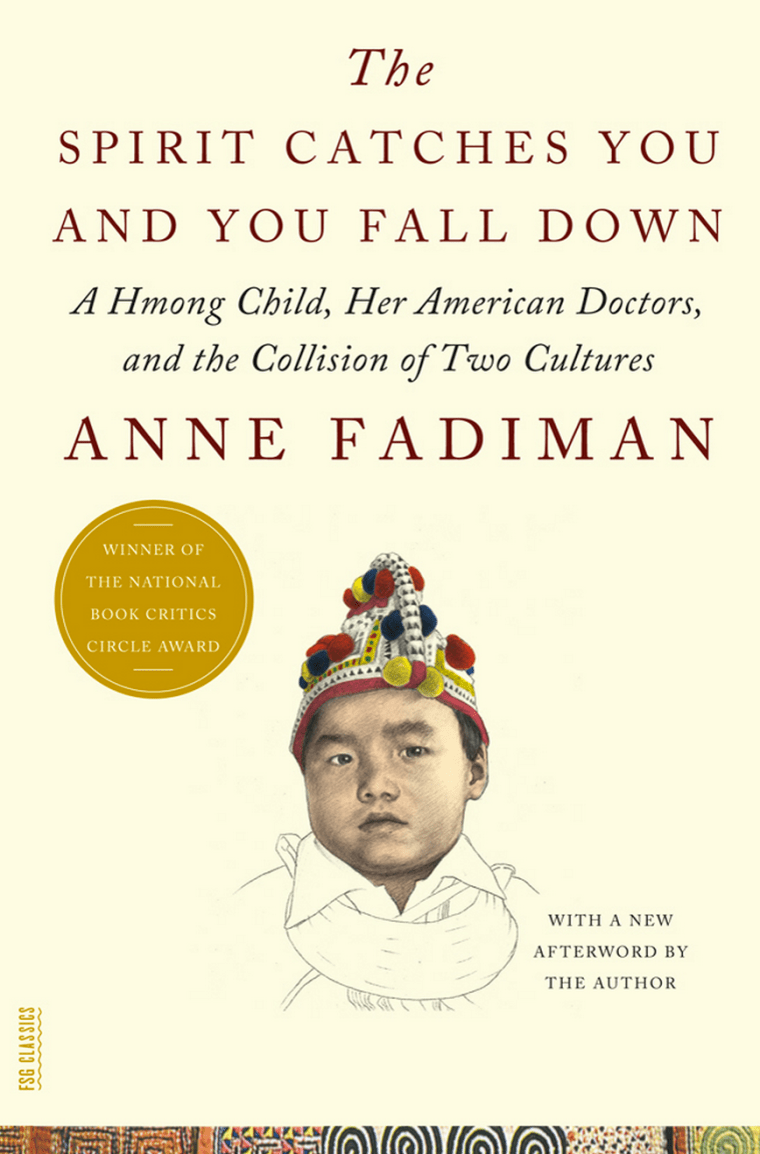 Fadiman takes a close look at the Hmong people, an ethnic group from the highlands of China and Laos, and explains the many complexities of adapting to American life a world away from home. The main focus of the book, an epileptic child called Lia, informs the difficulty in balancing cultural differences with societal adaptation.
Fadiman takes a close look at the Hmong people, an ethnic group from the highlands of China and Laos, and explains the many complexities of adapting to American life a world away from home. The main focus of the book, an epileptic child called Lia, informs the difficulty in balancing cultural differences with societal adaptation.
2. Maya Angelou – Even the Stars Look Lonesome (1997)
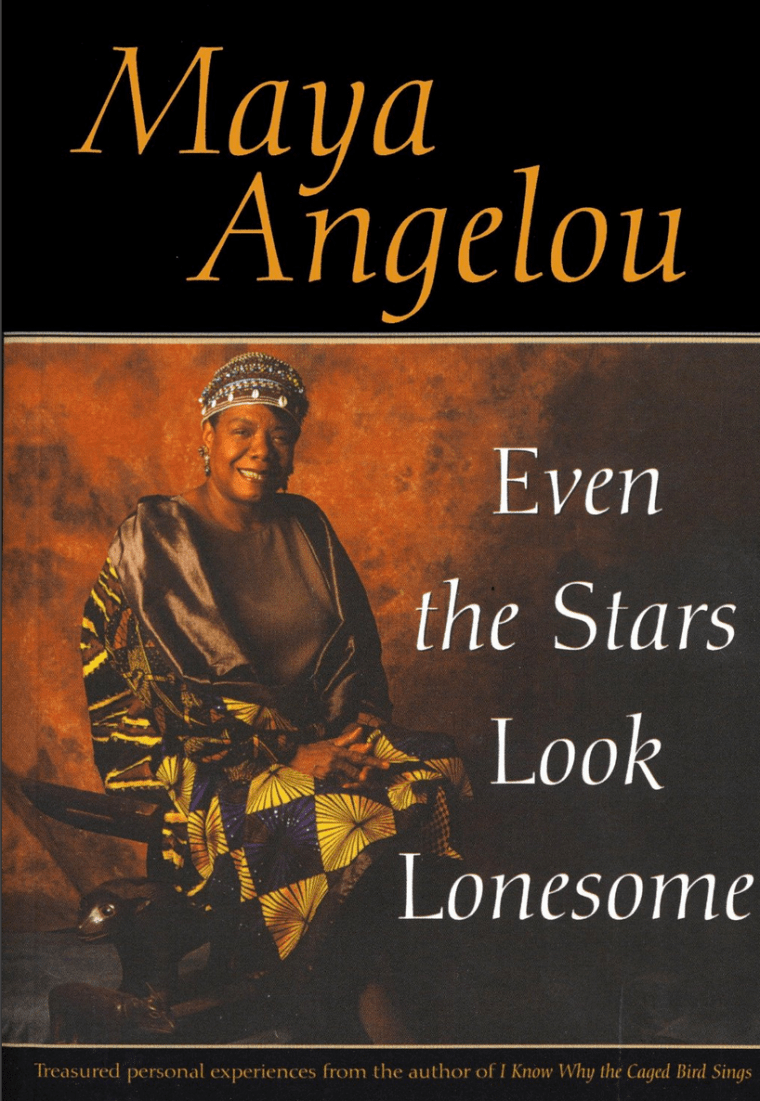 Angelou, the writer of half a dozen autobiographies, shines just as brightly in this series of essays, which mostly focus on black culture in the United States. Her essay topics include Oprah Winfrey and the empowerment of black women in America, topics she approaches with accessibility and a delightful ease of language.
Angelou, the writer of half a dozen autobiographies, shines just as brightly in this series of essays, which mostly focus on black culture in the United States. Her essay topics include Oprah Winfrey and the empowerment of black women in America, topics she approaches with accessibility and a delightful ease of language.
3. Adam Hochschild – King Leopold’s Ghost (1998)
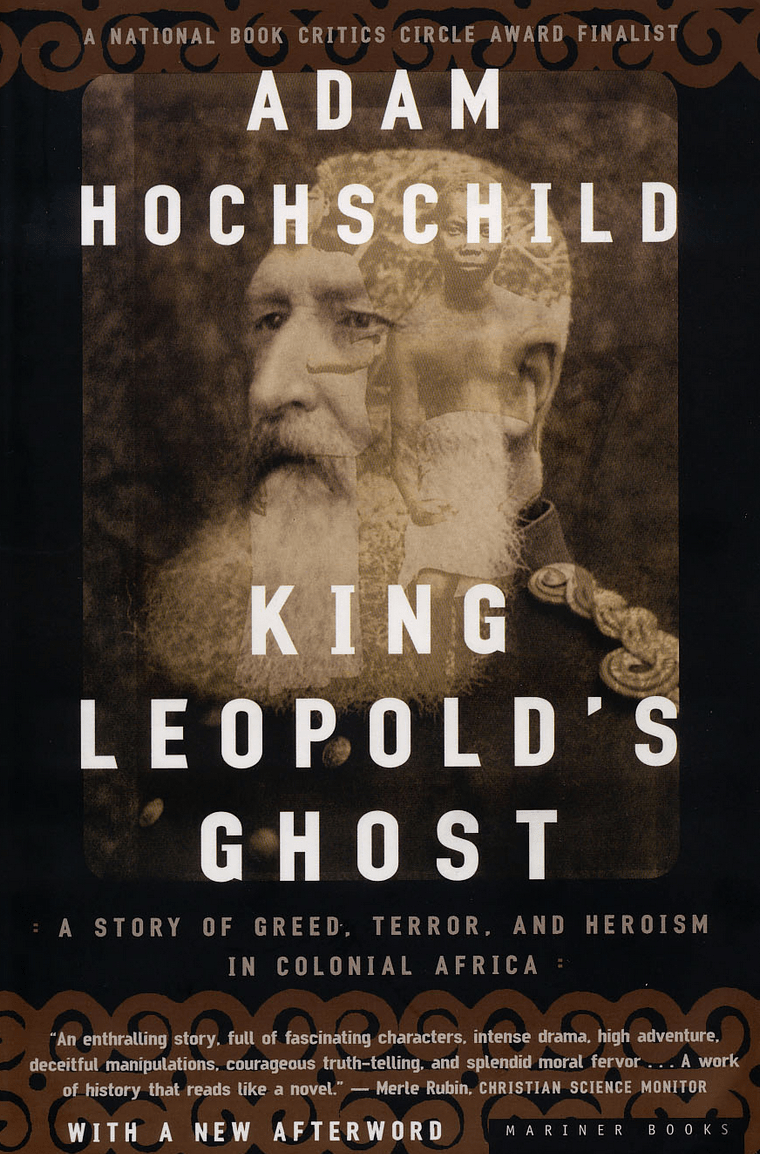 We probably learned the most about the troubled history of the Congo from Joseph Conrad’s Heart of Darkness, but Hochschild’s book exhibits the true magnitude of all the atrocities in painstaking detail, and along the way, shows us the faces of the puppeteers and monsters of this dark moment in history.
We probably learned the most about the troubled history of the Congo from Joseph Conrad’s Heart of Darkness, but Hochschild’s book exhibits the true magnitude of all the atrocities in painstaking detail, and along the way, shows us the faces of the puppeteers and monsters of this dark moment in history.
4. Peter Ackroyd – London: The Biography (2000) 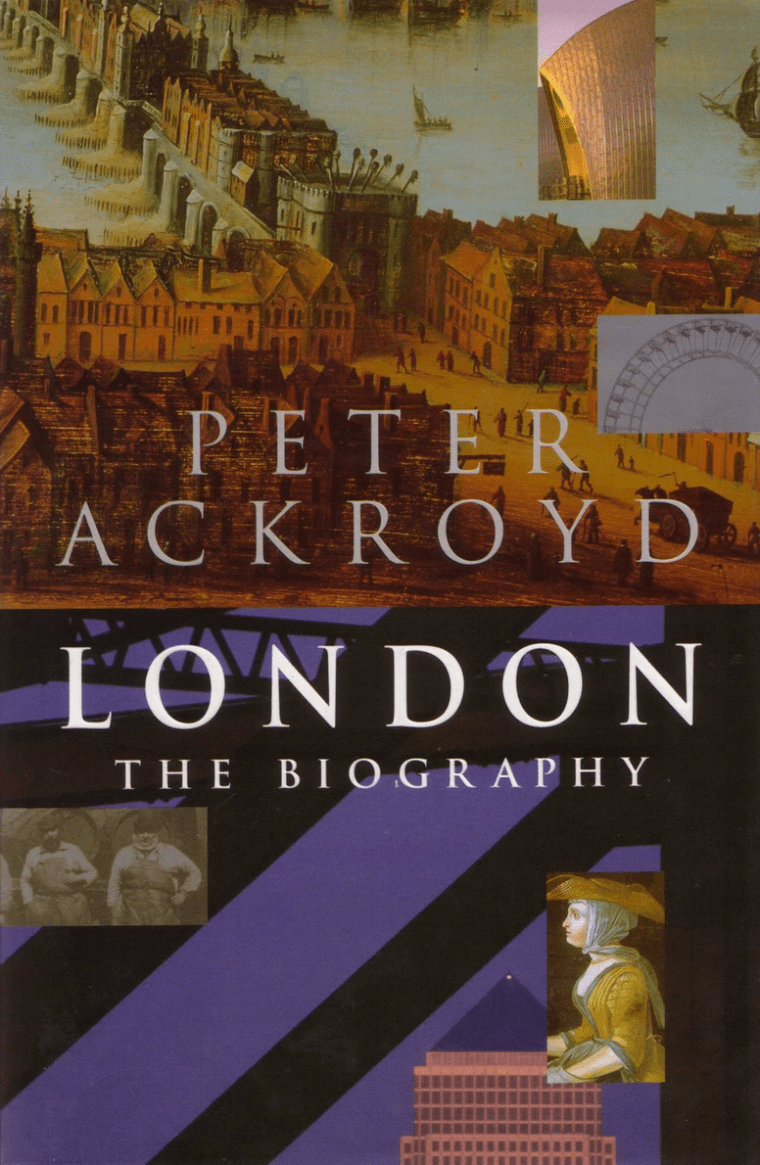 Ackroyd is a man of megaprojects, and like his older works on the great bards of England, this leviathan of a book seems to go over every nook and cranny of the city he loves. The book is less of a regal history than a down-to-earth adventure through the ever-changing streets of one of the world’s great metropolises.
Ackroyd is a man of megaprojects, and like his older works on the great bards of England, this leviathan of a book seems to go over every nook and cranny of the city he loves. The book is less of a regal history than a down-to-earth adventure through the ever-changing streets of one of the world’s great metropolises.
5. Barbara Ehrenreich – Nickel and Dimed: On (Not) Getting by in America (2001)  Ehrenreich’s controversial book about the plight of the working poor takes an intimate look at the simple challenges of making it in America, where many jobs are difficult but unrewarding, employers have surprising control over its workers, and people lead largely unsatisfactory lives. A great display of how a book can argue through example.
Ehrenreich’s controversial book about the plight of the working poor takes an intimate look at the simple challenges of making it in America, where many jobs are difficult but unrewarding, employers have surprising control over its workers, and people lead largely unsatisfactory lives. A great display of how a book can argue through example.
6. Margaret MacMillan – Paris 1919 (2001)  A great book for history buffs, MacMillan writes a riveting history of the Treaty of Versailles in Paris after the First World War, where world leaders converged to rewrite maps in Europe, Africa, Asia and the Middle East. The great appeal of this book is the precise character studies of the gilded historical figures; some underdogs appear as fearless, some giants and conceited.
A great book for history buffs, MacMillan writes a riveting history of the Treaty of Versailles in Paris after the First World War, where world leaders converged to rewrite maps in Europe, Africa, Asia and the Middle East. The great appeal of this book is the precise character studies of the gilded historical figures; some underdogs appear as fearless, some giants and conceited.
7. Erik Larson – Devil in the White City (2003) 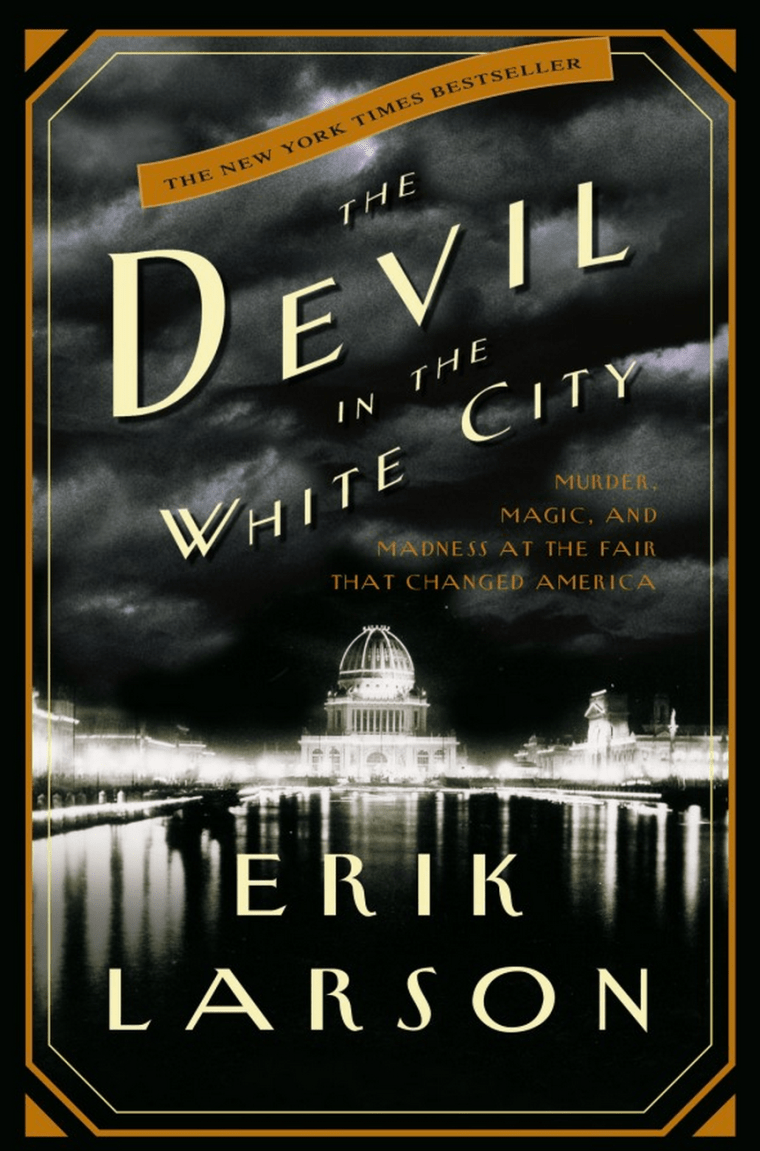 Larson provides us with a thriller about a conniving serial killer who owns a hotel in the growing city of Chicago in the late 19th century, all while hundreds of different nations and luminaries converge for the 1893 World’s Fair. The book is a testament to what was gained during the fair (the ferris wheel was first introduced here) and what was lost in the great migration towards the city.
Larson provides us with a thriller about a conniving serial killer who owns a hotel in the growing city of Chicago in the late 19th century, all while hundreds of different nations and luminaries converge for the 1893 World’s Fair. The book is a testament to what was gained during the fair (the ferris wheel was first introduced here) and what was lost in the great migration towards the city.
8. Romeo Dallaire – Shake Hands With the Devil: The Failure of Humanity in Rwanda (2003) 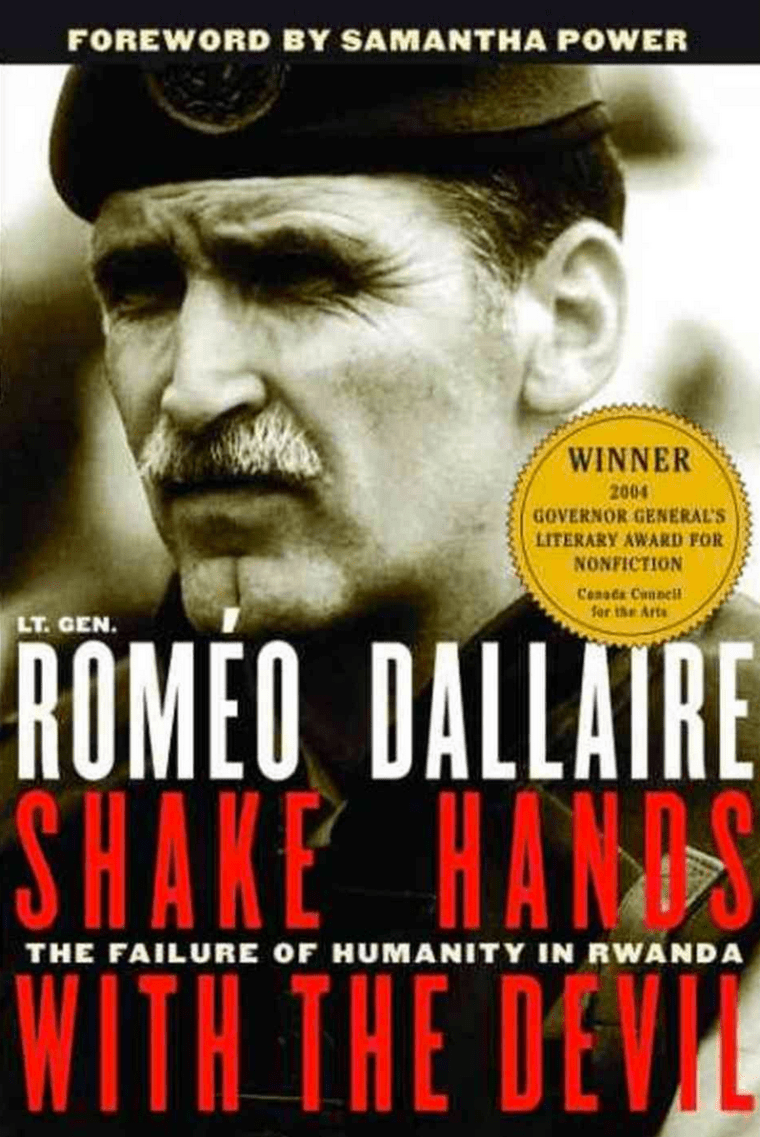 The Rwandan Genocide was one of the most horrific events of the 20th century, but the man tasked by the U.N. to quell the violence produced a stunning memoir about surviving the ordeal both during and after the 100 days of killing. Dallaire’s book is honest but heart-wrenching, exposing the institutional failures that left hundreds of thousands prone to killing.
The Rwandan Genocide was one of the most horrific events of the 20th century, but the man tasked by the U.N. to quell the violence produced a stunning memoir about surviving the ordeal both during and after the 100 days of killing. Dallaire’s book is honest but heart-wrenching, exposing the institutional failures that left hundreds of thousands prone to killing.
9. Jon Krakauer – Under the Banner of Heaven (2003) 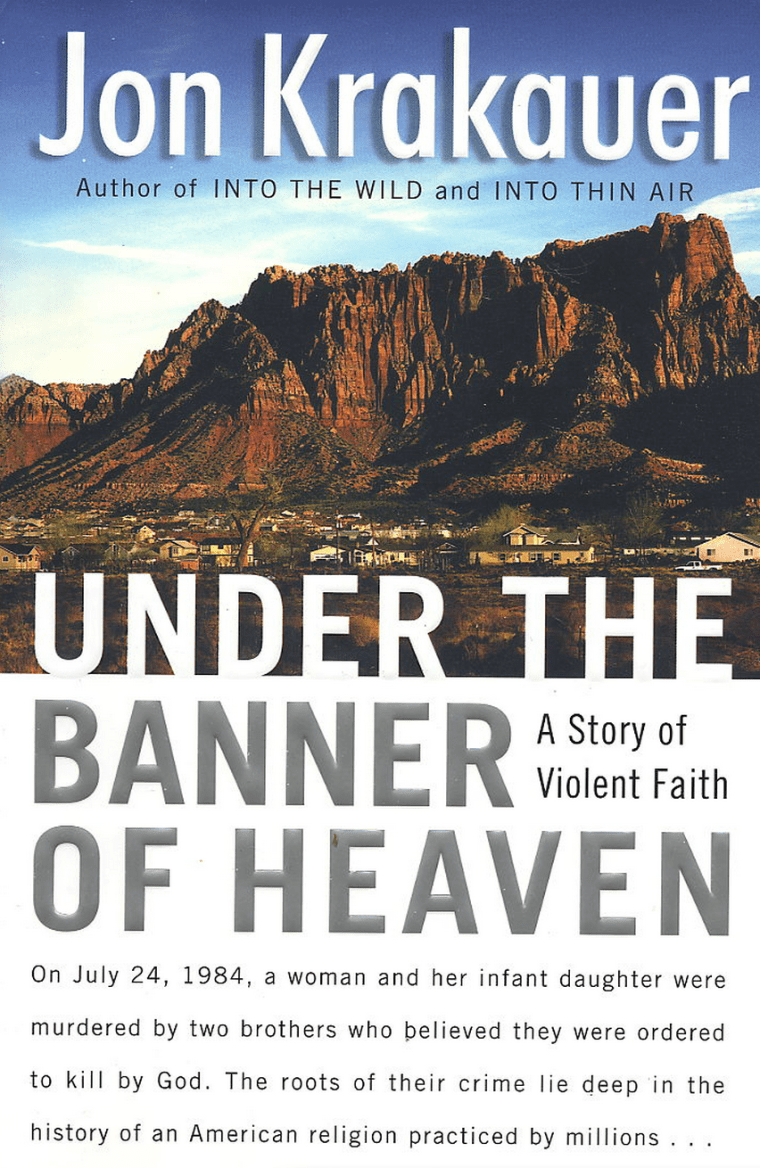 Krakauer is best known for Into the Wild, his book about doomed explorer Chris MccAndless, but his book on the fundamentalist sect of the Mormon Church is deliciously gripping from the first page to the last. Focusing on the murder of a family in Utah, Krakauer uses the scene to unravel the complexities of the Mormon founding and exodus across America.
Krakauer is best known for Into the Wild, his book about doomed explorer Chris MccAndless, but his book on the fundamentalist sect of the Mormon Church is deliciously gripping from the first page to the last. Focusing on the murder of a family in Utah, Krakauer uses the scene to unravel the complexities of the Mormon founding and exodus across America.
10. Adrian Nicole Leblanc – Random Family: Love, Drugs, Trouble, and Coming of Age in the Bronx (2004) 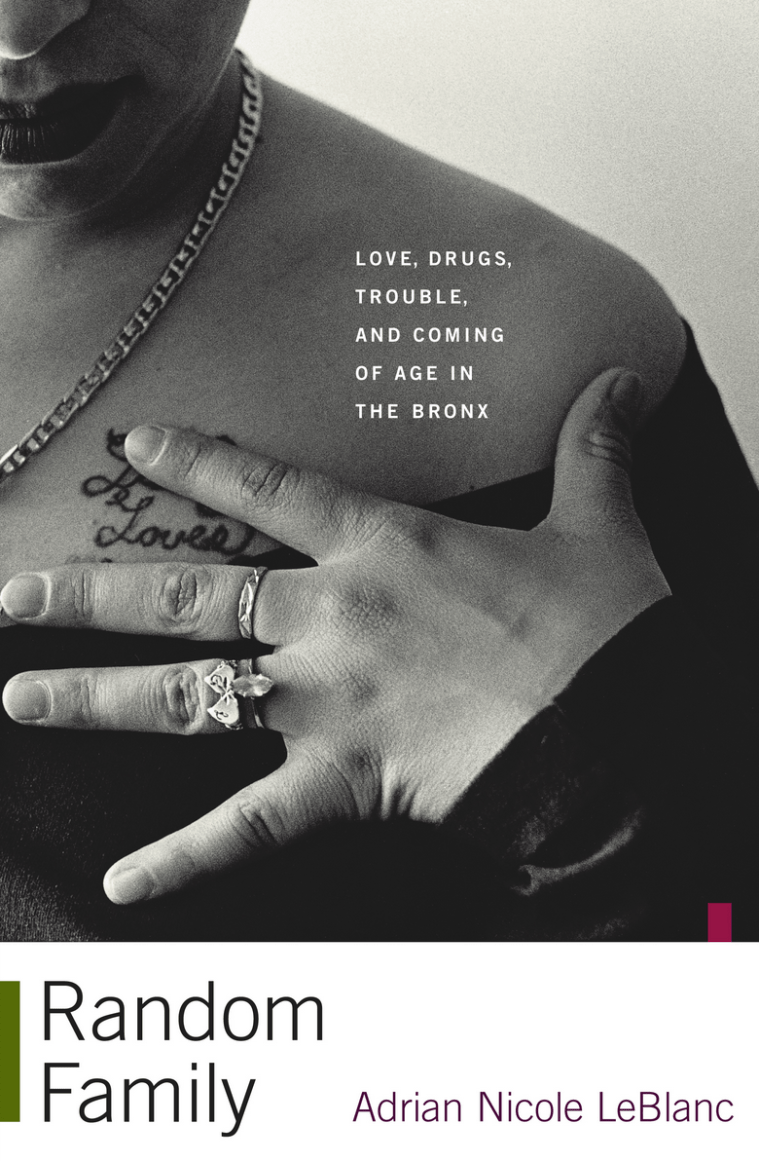 Leblanc takes a close look at the lives of Puerto Ricans living in New York City without making sweeping sociological assumptions about what they do and how they do it. The plot follows a family as they try and get by, mingle with local drug lords and suffer the daily consequences of living in abject poverty. A great book that makes big points without passing judgement.
Leblanc takes a close look at the lives of Puerto Ricans living in New York City without making sweeping sociological assumptions about what they do and how they do it. The plot follows a family as they try and get by, mingle with local drug lords and suffer the daily consequences of living in abject poverty. A great book that makes big points without passing judgement.
11. Anthony Kiedis – Scar Tissue (2004) 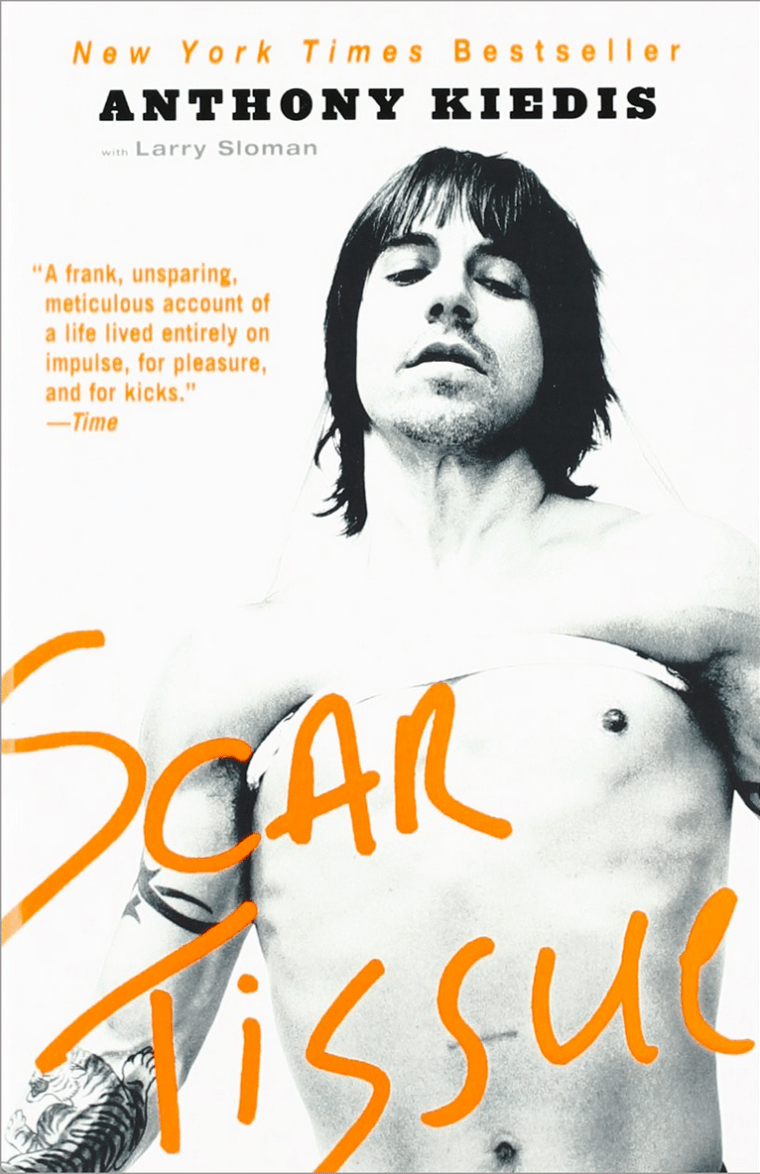 Kiedis is one of the many rockstars on this list who reveals the vivid ups and downs of the life, but as a book that has resonated with both teens and adults, I had to include this in the selection. Following his difficult childhood and his years of drug addiction while on the road to stardom, this book is great for those who want to know about the true cost of fame.
Kiedis is one of the many rockstars on this list who reveals the vivid ups and downs of the life, but as a book that has resonated with both teens and adults, I had to include this in the selection. Following his difficult childhood and his years of drug addiction while on the road to stardom, this book is great for those who want to know about the true cost of fame.
12. Sam Harris – The End of Faith: Religion, Terror, and the Future of Reason (2005)  The End of Faith is a carefully-plotted invective against the role of faith and religion in society, one that blames society as a whole for being too lenient towards the subjectivity of belief. His argument, like Richard Dawkins’ in The God Delusion, is provocative but well-constructed; great for (even-tempered) religious debate amongst friends, family or colleagues.
The End of Faith is a carefully-plotted invective against the role of faith and religion in society, one that blames society as a whole for being too lenient towards the subjectivity of belief. His argument, like Richard Dawkins’ in The God Delusion, is provocative but well-constructed; great for (even-tempered) religious debate amongst friends, family or colleagues.
13. David Foster Wallace – Consider the Lobster and Other Essays (2005) 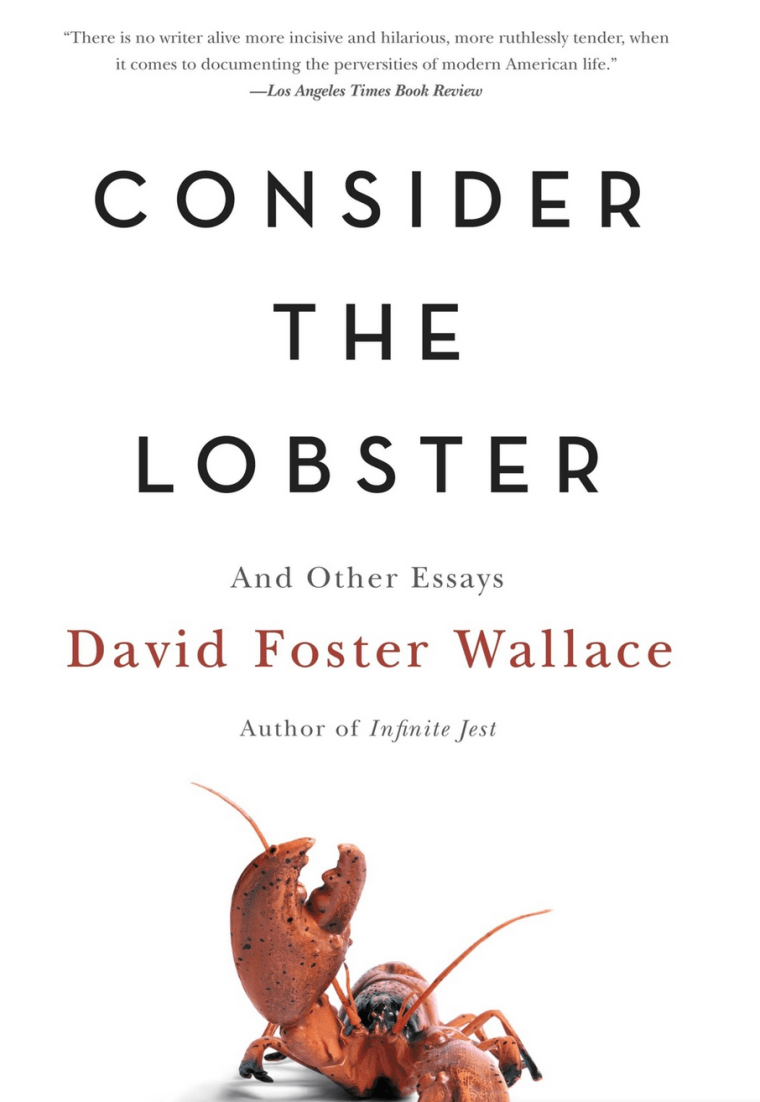 The late novelist and essayist left thousands of pages of dense material for us to look through, but perhaps his most accessible work is his series of essays about Kafka, O.J. Simpson and of course, lobsters. The primary essay is detailed and asks tough questions about the cooking of live crustaceans for the benefit of wealthy festival patrons in Maine.
The late novelist and essayist left thousands of pages of dense material for us to look through, but perhaps his most accessible work is his series of essays about Kafka, O.J. Simpson and of course, lobsters. The primary essay is detailed and asks tough questions about the cooking of live crustaceans for the benefit of wealthy festival patrons in Maine.
14. Jeannette Walls – The Glass Castle (2006) 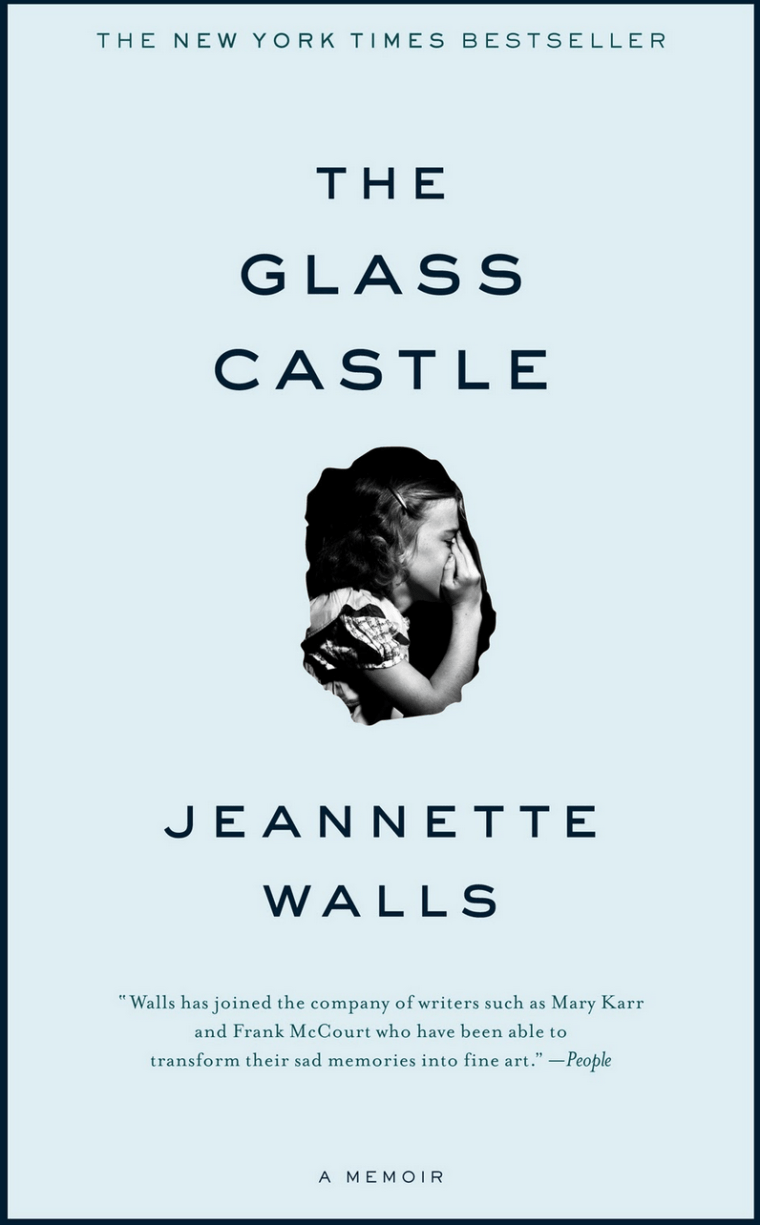 The Glass Castle is the poetic incarnation of Walls’ troubled childhood as the daughter of two troubadour parents who were simply unfit to raise a child in this world. Full of spunky charm but fraught his domestic horror, the book chronicles their journey from American West to West Virginia, where the cycle of abject violence and abuse persists.
The Glass Castle is the poetic incarnation of Walls’ troubled childhood as the daughter of two troubadour parents who were simply unfit to raise a child in this world. Full of spunky charm but fraught his domestic horror, the book chronicles their journey from American West to West Virginia, where the cycle of abject violence and abuse persists.
15. Michael Pollan – The Omnivore’s Dilemma (2006) 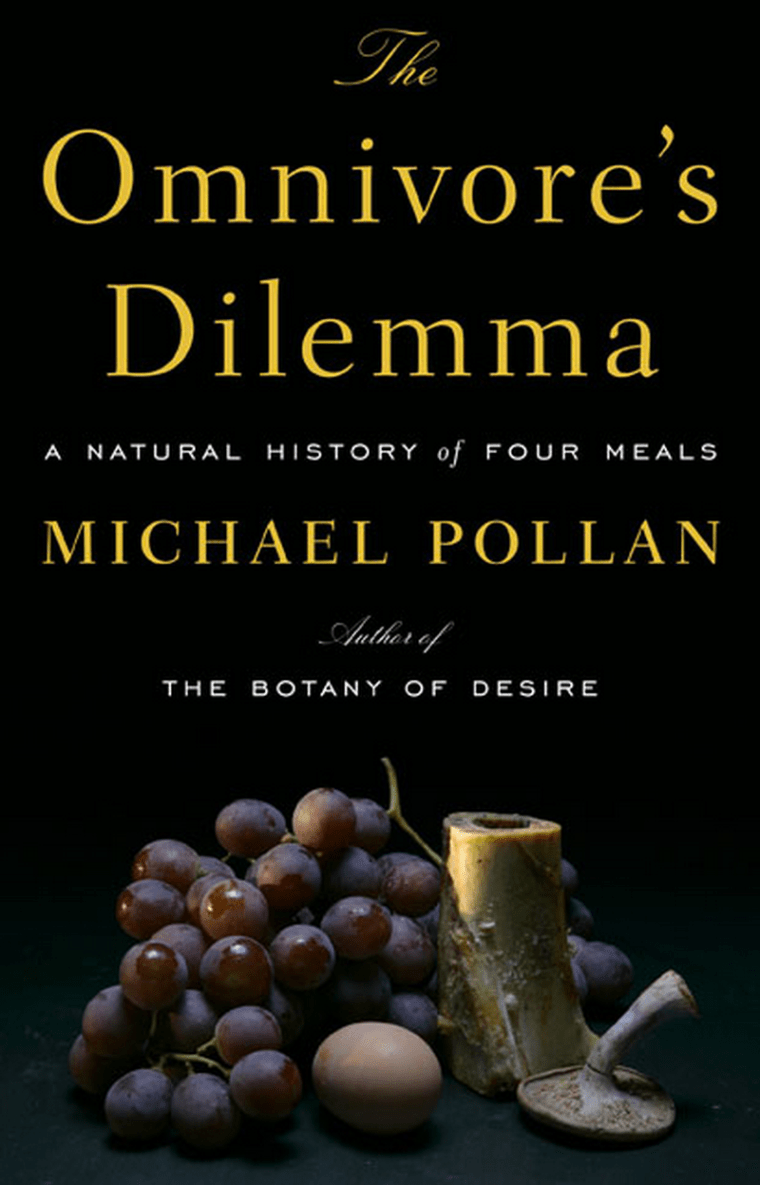 Where does our food come from, exactly? Pollan, blending complex agriculture and biology with a biting wit, makes us rethink the very food that we put on our table every night. By exploring the methods of industrial and organic farmers, Pollan leaves no stone unturned in his exploration of the modern breadbasket.
Where does our food come from, exactly? Pollan, blending complex agriculture and biology with a biting wit, makes us rethink the very food that we put on our table every night. By exploring the methods of industrial and organic farmers, Pollan leaves no stone unturned in his exploration of the modern breadbasket.
16. Michael Lewis – The Blind Side: Evolution of a Game (2006)  Adapted into a heartwarming film, Michael Lewis makes the book a worthwhile read with his stunning attention to detail. What makes his prose irresistible is how he weaves together the obscure history of a type of football player (the defensive leftback) with the human element of Michael Oher, the giant football phenom who rose from the streets to play in the NFL.
Adapted into a heartwarming film, Michael Lewis makes the book a worthwhile read with his stunning attention to detail. What makes his prose irresistible is how he weaves together the obscure history of a type of football player (the defensive leftback) with the human element of Michael Oher, the giant football phenom who rose from the streets to play in the NFL.
Nazario’s stunning account of a young, teenage migrant traveling from Honduras to the United States via train tops is as heartbreaking and terrifying as it is uplifting. Enrique, a resourceful, stubborn but troubled kid, represents the ongoing challenges that impoverished families must face in the developing world.
18. Joan Didion – The Year of Magical Thinking (2007) 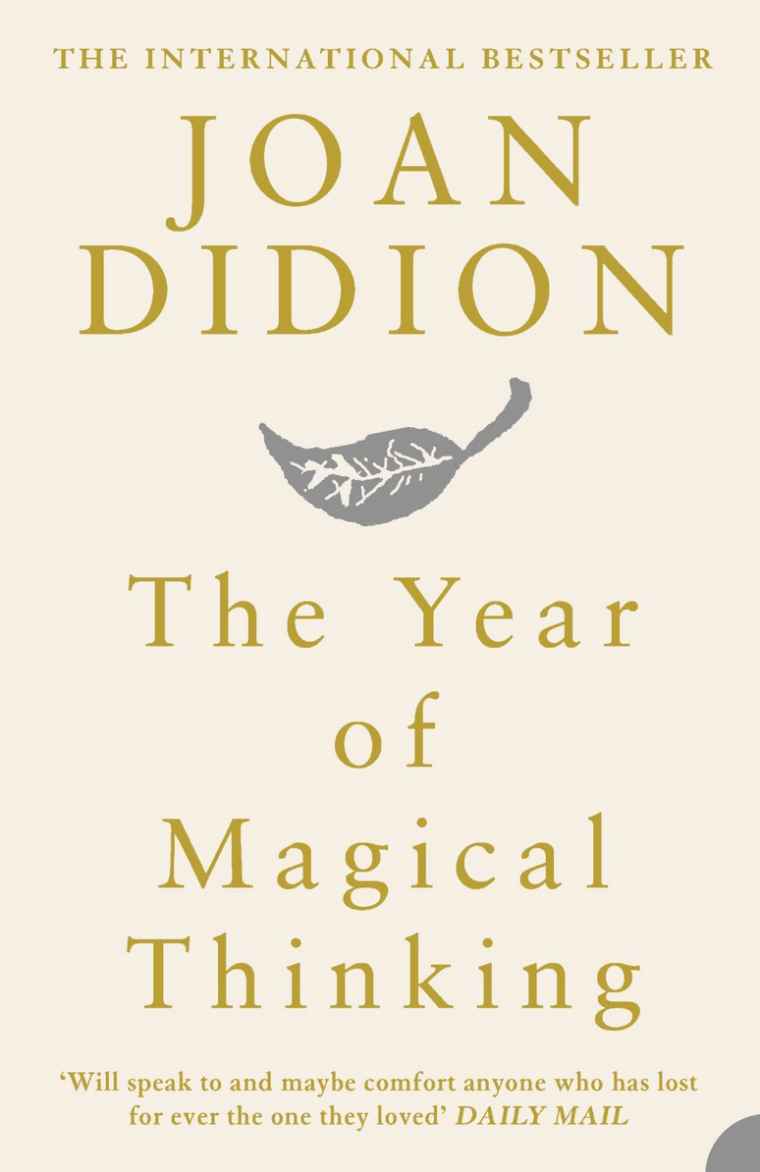 Didion, who had already enjoyed a prolific career as a nonfiction writer, penned a memoir about the sudden death of her husband, who collapsed almost immediately after her daughter went into a coma. But The Year of Magical Thinking is tinged with Didion’s signature humor; far from being mournful and reflective, her prose matches the ever-changing symptoms of grief she feels after the fact.
Didion, who had already enjoyed a prolific career as a nonfiction writer, penned a memoir about the sudden death of her husband, who collapsed almost immediately after her daughter went into a coma. But The Year of Magical Thinking is tinged with Didion’s signature humor; far from being mournful and reflective, her prose matches the ever-changing symptoms of grief she feels after the fact.
19. Tim Weiner – Legacy of Ashes: The History of the CIA (2007)  Most books about the CIA are spy thrillers placing us in the romanticized, nether regions of the world with resourceful spies and swarthy love interests. But perhaps the most grounded book about the real state of the CIA is Weiner’s comprehensive history of CIA failure, which goes over the power and lack thereof of America’s elusive Spy agency.
Most books about the CIA are spy thrillers placing us in the romanticized, nether regions of the world with resourceful spies and swarthy love interests. But perhaps the most grounded book about the real state of the CIA is Weiner’s comprehensive history of CIA failure, which goes over the power and lack thereof of America’s elusive Spy agency.
20. Jeremy Scahill – Blackwater : The Rise of the World’s Most Powerful Mercenary Army (2007)  Scahill, who became a household name with his book and documentary Dirty Wars, produced an equally engaging look into the world of private military contracting, focusing on the wild-west actions of Blackwater, a private security firm who assisted the United States in Iraq. Bold and fearless journalism, the book follows the dramatic killing of 17 Iraqis at the hands of the firm during some of the bloodiest fighting in the war.
Scahill, who became a household name with his book and documentary Dirty Wars, produced an equally engaging look into the world of private military contracting, focusing on the wild-west actions of Blackwater, a private security firm who assisted the United States in Iraq. Bold and fearless journalism, the book follows the dramatic killing of 17 Iraqis at the hands of the firm during some of the bloodiest fighting in the war.
21. Naomi Klein – The Shock Doctrine (2007) 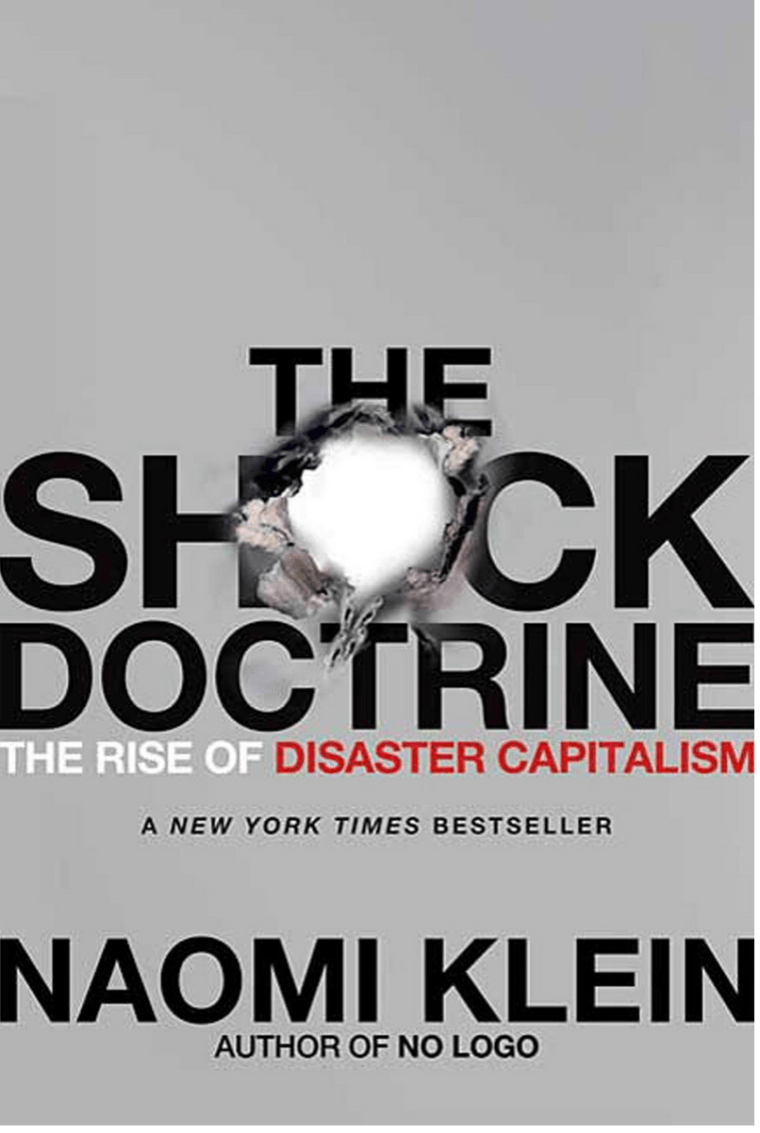 Naomi Klein is a controversial pillar of the American left, maligned by conservatives but regarded as a seer of the political and economic machinations of American Capitalism. The Shock Doctrine posits that capitalism works best on a blank slate, so the most sweeping and violent changes happen after disasters or upheavals, such as the decline of public schools and rise of charter schools in New Orleans after Hurricane Katrina.
Naomi Klein is a controversial pillar of the American left, maligned by conservatives but regarded as a seer of the political and economic machinations of American Capitalism. The Shock Doctrine posits that capitalism works best on a blank slate, so the most sweeping and violent changes happen after disasters or upheavals, such as the decline of public schools and rise of charter schools in New Orleans after Hurricane Katrina.
22. Annette Gordon-Reed – The Hemingses of Monticello: An American Family (2007)  One of the most polarizing figures in America today is Thomas Jefferson. As an American icon but a middling slaveowner, far more books have lauded his reputation than have challenged it. But An American Family puts the focus right on the family of Sally Hemings’, Jefferson’s purported mistress, over three generations.
One of the most polarizing figures in America today is Thomas Jefferson. As an American icon but a middling slaveowner, far more books have lauded his reputation than have challenged it. But An American Family puts the focus right on the family of Sally Hemings’, Jefferson’s purported mistress, over three generations.
23. Douglas A. Blackmon – Slavery by Another Name: The Re-Enslavement of Black Americans from the Civil War to World War II (2008) 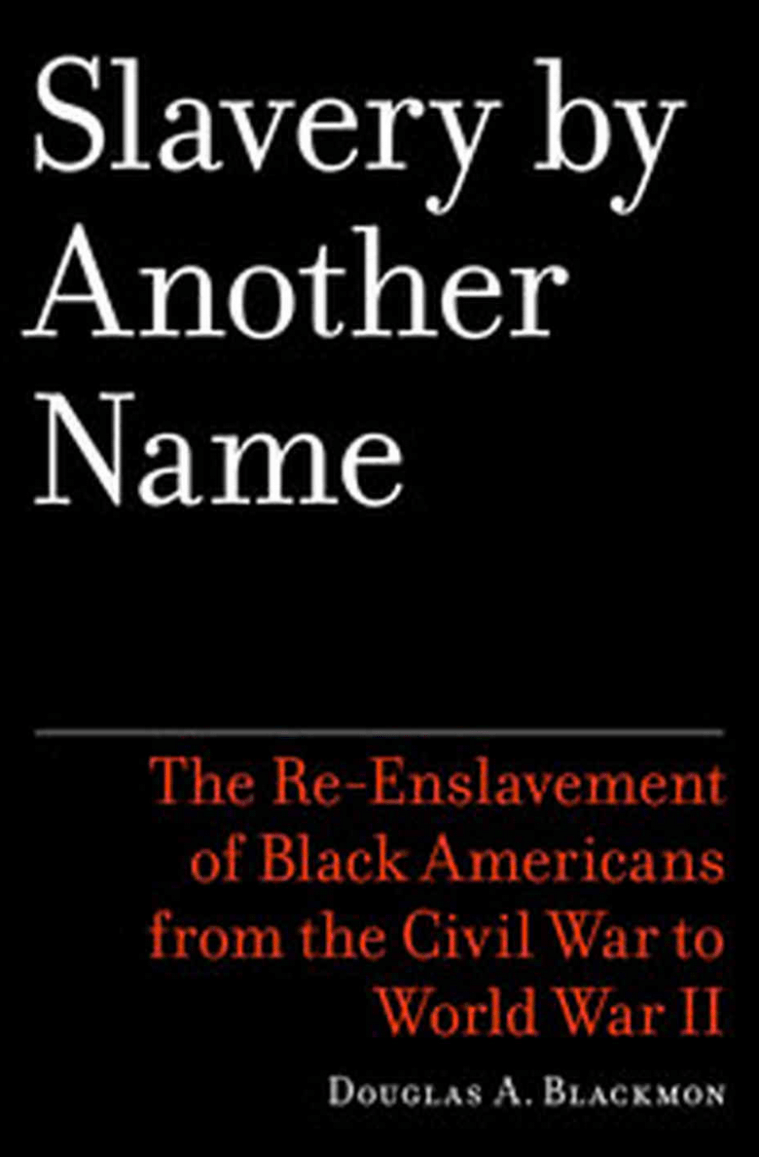 Blackmon takes a close look at post-slavery America and argues that, for many black farmers, workers and average citizens, the cycle of slavery never really ended. The arguments pushed forward reveal that white groups sought to continue enslavement to maximize profits in the industrializing portions of the deep south.
Blackmon takes a close look at post-slavery America and argues that, for many black farmers, workers and average citizens, the cycle of slavery never really ended. The arguments pushed forward reveal that white groups sought to continue enslavement to maximize profits in the industrializing portions of the deep south.
 McDougall’s book takes a close look at the Tarahumara, a tribe in the Chiahuahua province of Mexico who are renowned for their ability to run extreme distances in one session, far more than most marathon runners, in fact. Great for athlete readers, the book takes an against-the-grain view of the nature of running, something the tribe does differently in almost every respect.
McDougall’s book takes a close look at the Tarahumara, a tribe in the Chiahuahua province of Mexico who are renowned for their ability to run extreme distances in one session, far more than most marathon runners, in fact. Great for athlete readers, the book takes an against-the-grain view of the nature of running, something the tribe does differently in almost every respect.
25. Dave Eggers – Zeitoun (2009)  The prolific Dave Eggers is now primarily a writer of fiction, but his 2009 effort captured the grim reality of surviving in Post-Katrina New Orleans, where the cataclysmic destruction of the city was just one of the many worries for the survivors. One of these survivors, a Syrian called Abdulrahman Zeitoun, must endure two weeks of wading through the half-destroyed city as his wife worries about his survival.
The prolific Dave Eggers is now primarily a writer of fiction, but his 2009 effort captured the grim reality of surviving in Post-Katrina New Orleans, where the cataclysmic destruction of the city was just one of the many worries for the survivors. One of these survivors, a Syrian called Abdulrahman Zeitoun, must endure two weeks of wading through the half-destroyed city as his wife worries about his survival.
26. Nick Reding – Methland: The Death and Life of an American Small Town (2009) 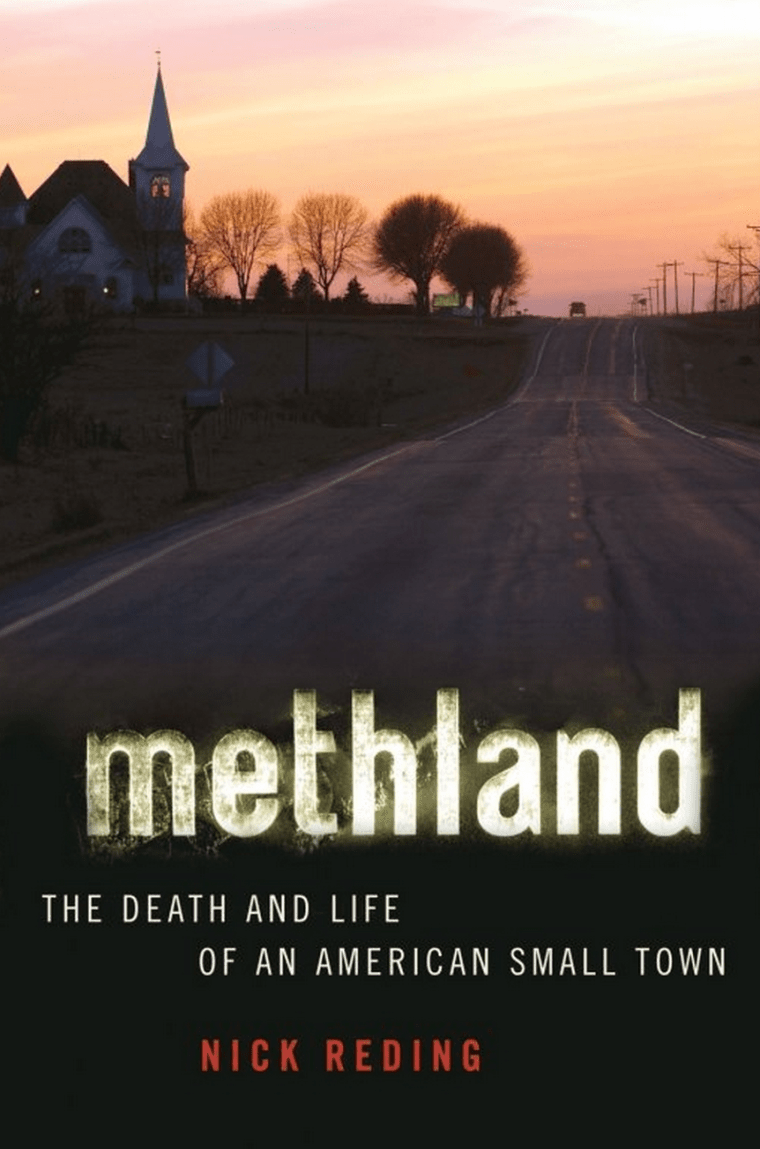 Reding takes a close look at a small town in Iowa to unravel a national problem. Methamphetamines, which found their way into the vulnerable farming town of Oelwein, took advantage of an economically unstable population who also suffered at the behest of big box stores, big agricultural interests and major pharmaceutical companies.
Reding takes a close look at a small town in Iowa to unravel a national problem. Methamphetamines, which found their way into the vulnerable farming town of Oelwein, took advantage of an economically unstable population who also suffered at the behest of big box stores, big agricultural interests and major pharmaceutical companies.
27. Keith Richards – Life (2010) 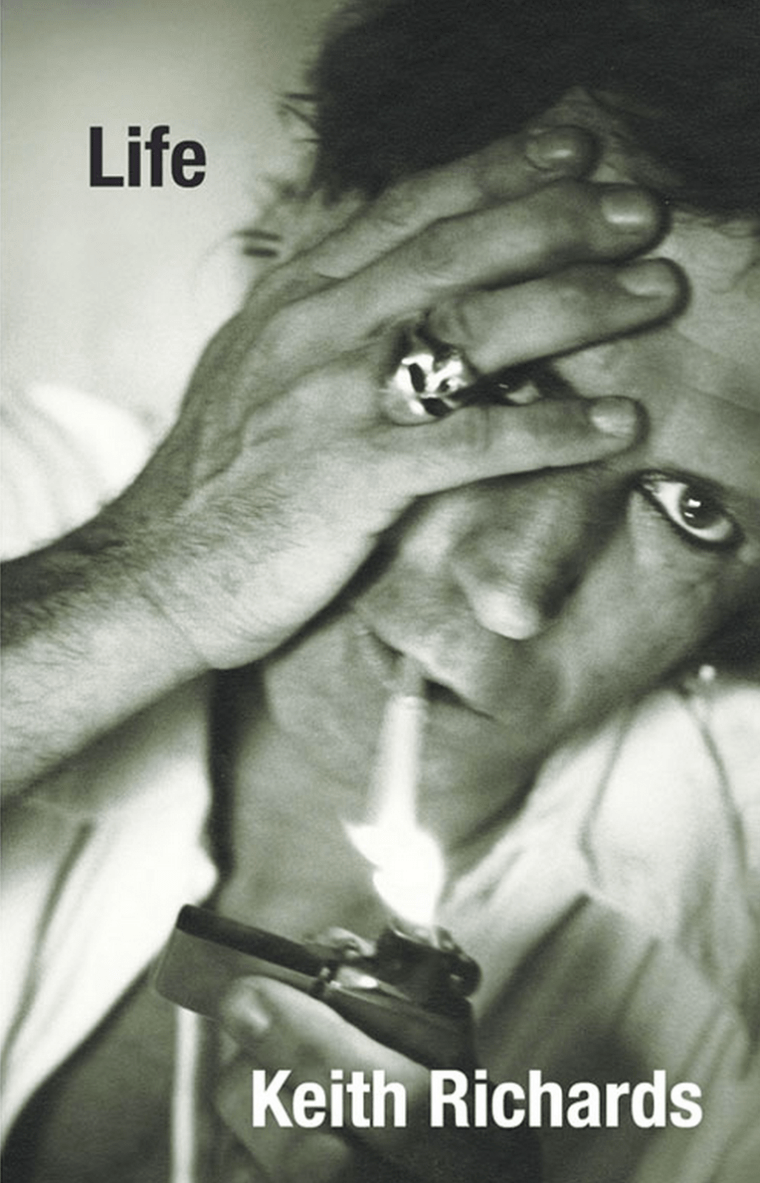 Keith Richards is a rock god like no other, one who combined unforgettable riffs with all-too forgettable drug binges. The king of excess was no stranger to fame, but his autobiography shows us the countless disagreements and fights that lined his gilded career. A great read for anyone with a hint of rock and roll in their blood.
Keith Richards is a rock god like no other, one who combined unforgettable riffs with all-too forgettable drug binges. The king of excess was no stranger to fame, but his autobiography shows us the countless disagreements and fights that lined his gilded career. A great read for anyone with a hint of rock and roll in their blood.
28. Christopher Ryan, Cacilda Jetha – Sex at Dawn (2010) 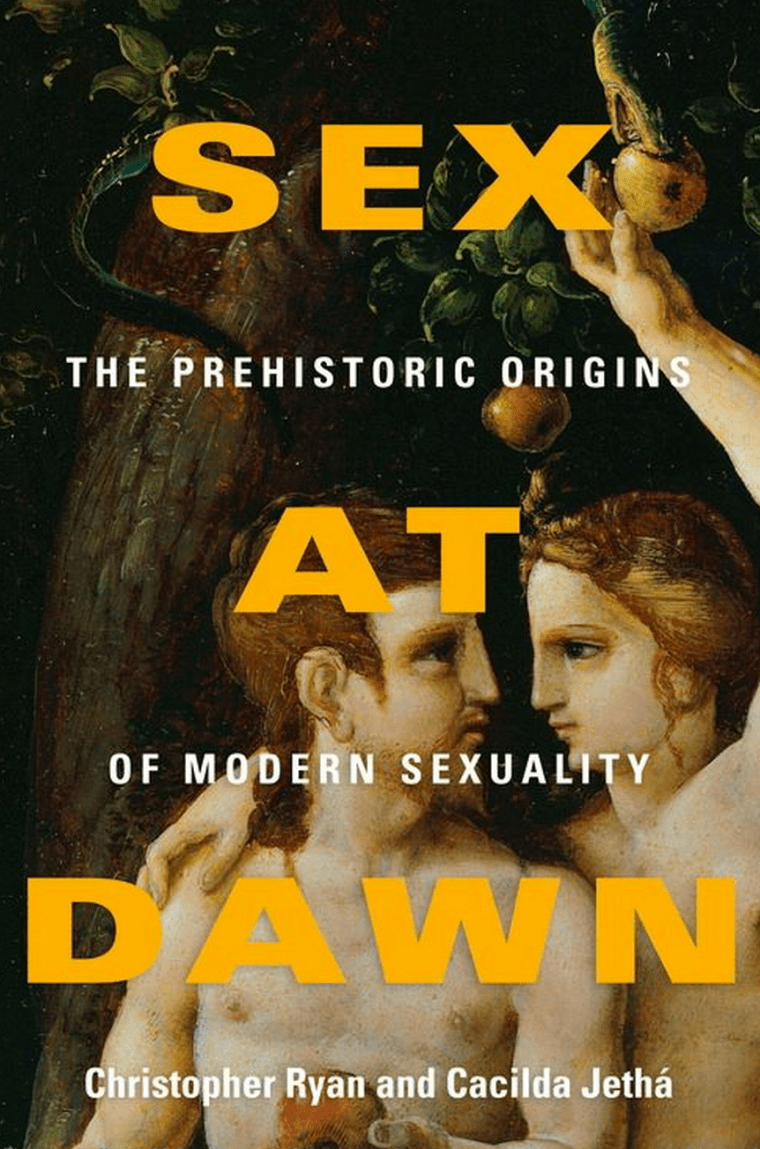 Sex at Dawn takes a close look at the modern state of marriage in the Western World, and then takes a step back to ask why it is that marriage is such a popular convention in our society. The truth, the argue, is that it wasn’t always this way, and that our primordial ancestors lived with far different rules than we do today. Great for those who love anthropology, history.
Sex at Dawn takes a close look at the modern state of marriage in the Western World, and then takes a step back to ask why it is that marriage is such a popular convention in our society. The truth, the argue, is that it wasn’t always this way, and that our primordial ancestors lived with far different rules than we do today. Great for those who love anthropology, history.
29. John Vaillant – The Tiger: A True Story of Vengeance and Survival (2010)  The story about a tiger hunting his hunter is a thrilling look at one of the rarest species on earth, the amur tiger aka the Siberian tiger. After a hunter fails to kill a giant tiger in the Russian wilderness, the tiger turns the tables and lots his revenge in this gripping, bizarre tale.
The story about a tiger hunting his hunter is a thrilling look at one of the rarest species on earth, the amur tiger aka the Siberian tiger. After a hunter fails to kill a giant tiger in the Russian wilderness, the tiger turns the tables and lots his revenge in this gripping, bizarre tale.
30. William T. Vollmann – Imperial (2010)  Vollmann takes a hard look at Imperial County, the destitute region in Southern California once famous for hosting the man-made Salton Sea. Part memoir, part analysis of post-industrial America, Imperial takes a hard look at the consequences of the boom and bust tourism economy in a place struggling to hang on.
Vollmann takes a hard look at Imperial County, the destitute region in Southern California once famous for hosting the man-made Salton Sea. Part memoir, part analysis of post-industrial America, Imperial takes a hard look at the consequences of the boom and bust tourism economy in a place struggling to hang on.
31. Patti Smith – Just Kids (2010) 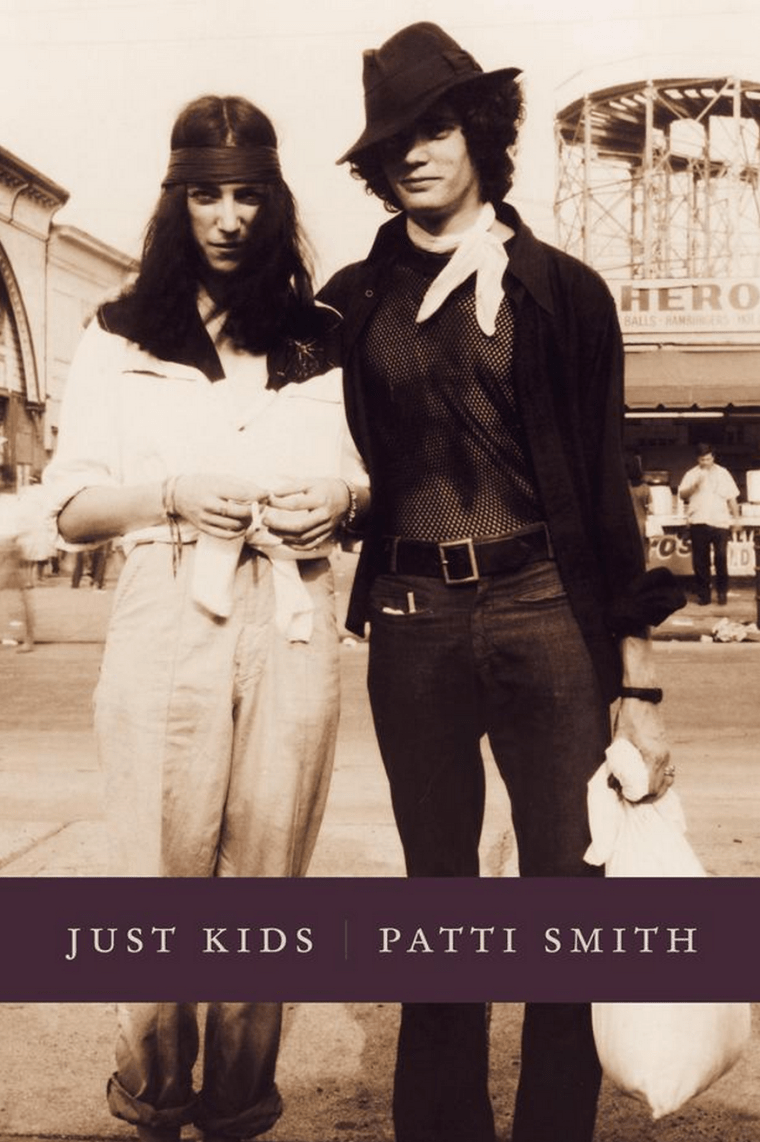 Smith’s memoir of life in New York City in the late 60’s and early 70’s is both a stunning autobiography and a wonderful time capsule piece, putting the reader right in the middle of one of the most vivacious art scenes American history. The book centers on Smith’s relationship with photographer Robert Mapplethorpe.
Smith’s memoir of life in New York City in the late 60’s and early 70’s is both a stunning autobiography and a wonderful time capsule piece, putting the reader right in the middle of one of the most vivacious art scenes American history. The book centers on Smith’s relationship with photographer Robert Mapplethorpe.
32. Christopher Hitchens – Hitch 22 (2010) 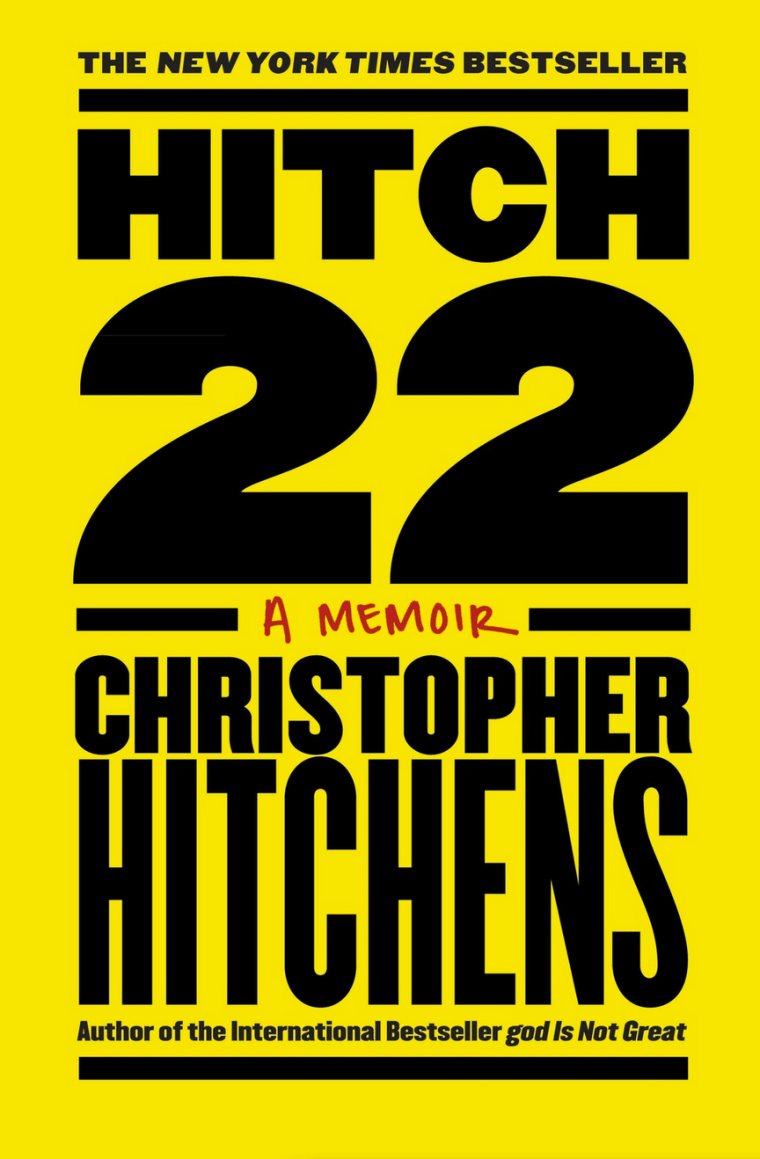 The larger-than-life Hitchens became a divisive figure in the arenas of both religious and political debate; he supported the Iraq War when no one else on the left did, and became such a visible figurehead for atheism that it overshadowed the rest of his work. His autobiography is a very personal look at the writer and thinker, who always seemed to have a way to provoke his adversaries and subsequently defend himself with relative ease.
The larger-than-life Hitchens became a divisive figure in the arenas of both religious and political debate; he supported the Iraq War when no one else on the left did, and became such a visible figurehead for atheism that it overshadowed the rest of his work. His autobiography is a very personal look at the writer and thinker, who always seemed to have a way to provoke his adversaries and subsequently defend himself with relative ease.
33. Oliver Sacks – The Mind’s Eye (2010) 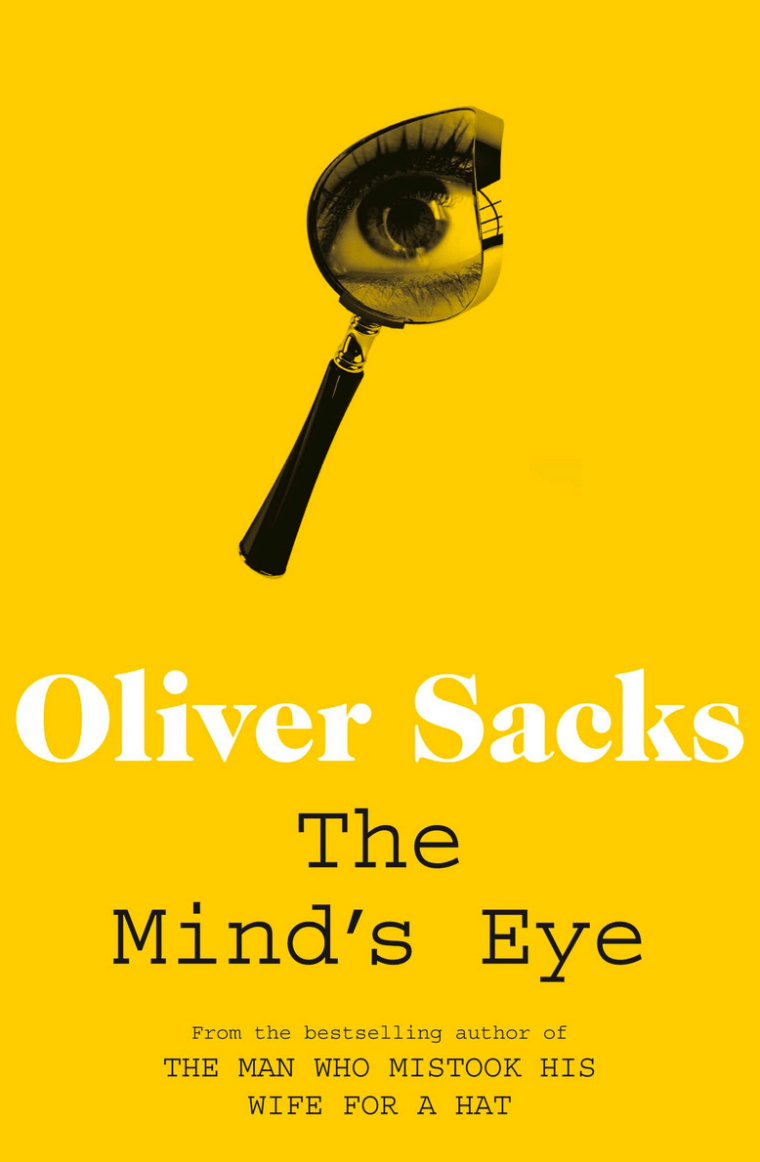 Sacks is a master of making the complex approachable and compelling, and his 11th book is no exception. This work focuses on the connection between what the brain perceives and how it digests that information, as well as what happens when senses fail. Beautifully written, Sacks also faces himself in this book, as his diagnosis with eye cancer becomes a subject warranting further investigation.
Sacks is a master of making the complex approachable and compelling, and his 11th book is no exception. This work focuses on the connection between what the brain perceives and how it digests that information, as well as what happens when senses fail. Beautifully written, Sacks also faces himself in this book, as his diagnosis with eye cancer becomes a subject warranting further investigation.
34. Mark Twain – Autobiography (2010) 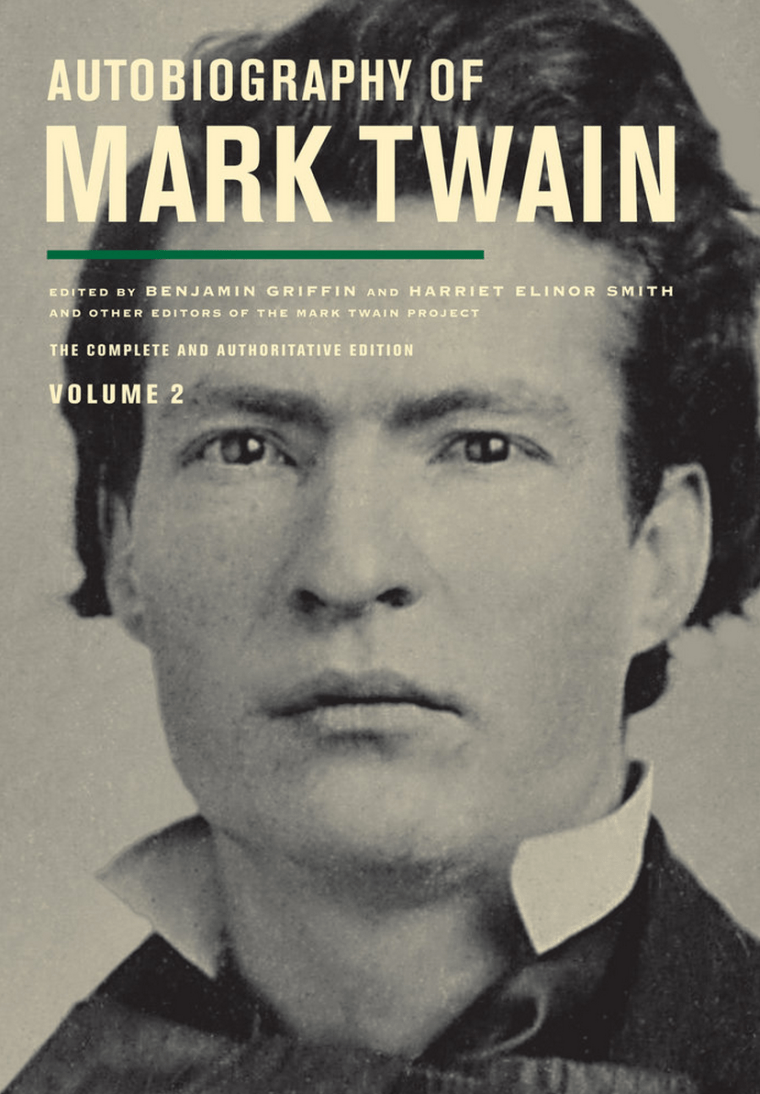 It’s easy to call an autobiography a ‘personal’ account of one’s life, but Twain unravels the image of the tale-telling bard in the white suit in this definitive account of his life work, out 100 years after publication because of an embargo placed on the book to give him freedom to say what he needed to say. The book looks over the blueprints of his genius, but also addresses his many flaws, some of which left him perpetually poor and struggling to get by.
It’s easy to call an autobiography a ‘personal’ account of one’s life, but Twain unravels the image of the tale-telling bard in the white suit in this definitive account of his life work, out 100 years after publication because of an embargo placed on the book to give him freedom to say what he needed to say. The book looks over the blueprints of his genius, but also addresses his many flaws, some of which left him perpetually poor and struggling to get by.
35. Nicholas Taleb – The Black Swan: The Impact of the Highly Improbable (2010) 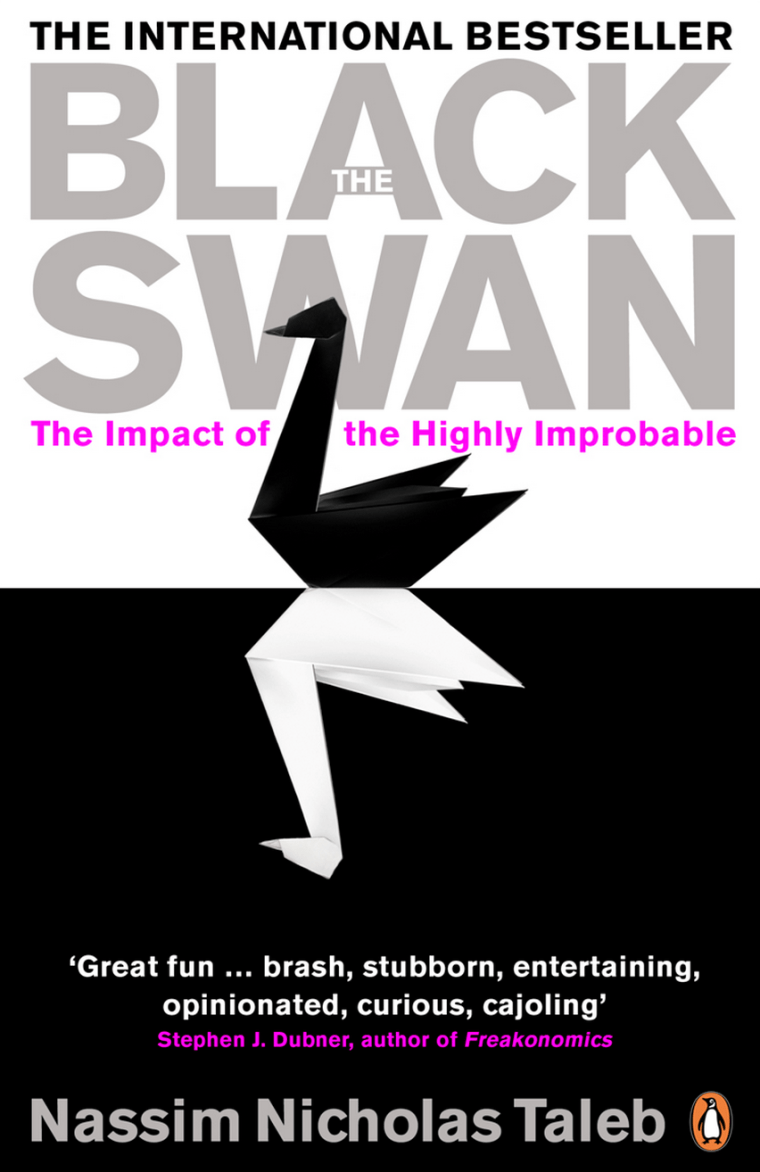 This controversial book posits that the majority of big events in the world are completely unexpected and impossible to predict, even if there are countless experts who play the role of clairvoyant. Scattered but conversational, Taleb’s prose is more like a warm fireside talk than a scientific treatise.
This controversial book posits that the majority of big events in the world are completely unexpected and impossible to predict, even if there are countless experts who play the role of clairvoyant. Scattered but conversational, Taleb’s prose is more like a warm fireside talk than a scientific treatise.
36. Walter Isaacson – Steve Jobs (2011)  Isaacson is a master biographer of the superintelligent, and Jobs, as Silicon Valley demigod and visionary behind Apple’s rise to becoming the world’s most valuable company, becomes the perfect test subject to the double-edged sword of genius. A luminary with an uneven temper and a pinch of delusion, Isaacson’s subject is unpredictable, despisable but all the more interesting given his accomplishments.
Isaacson is a master biographer of the superintelligent, and Jobs, as Silicon Valley demigod and visionary behind Apple’s rise to becoming the world’s most valuable company, becomes the perfect test subject to the double-edged sword of genius. A luminary with an uneven temper and a pinch of delusion, Isaacson’s subject is unpredictable, despisable but all the more interesting given his accomplishments.
37. Karl Ove Knausgaard – My Struggle (2011-2013) 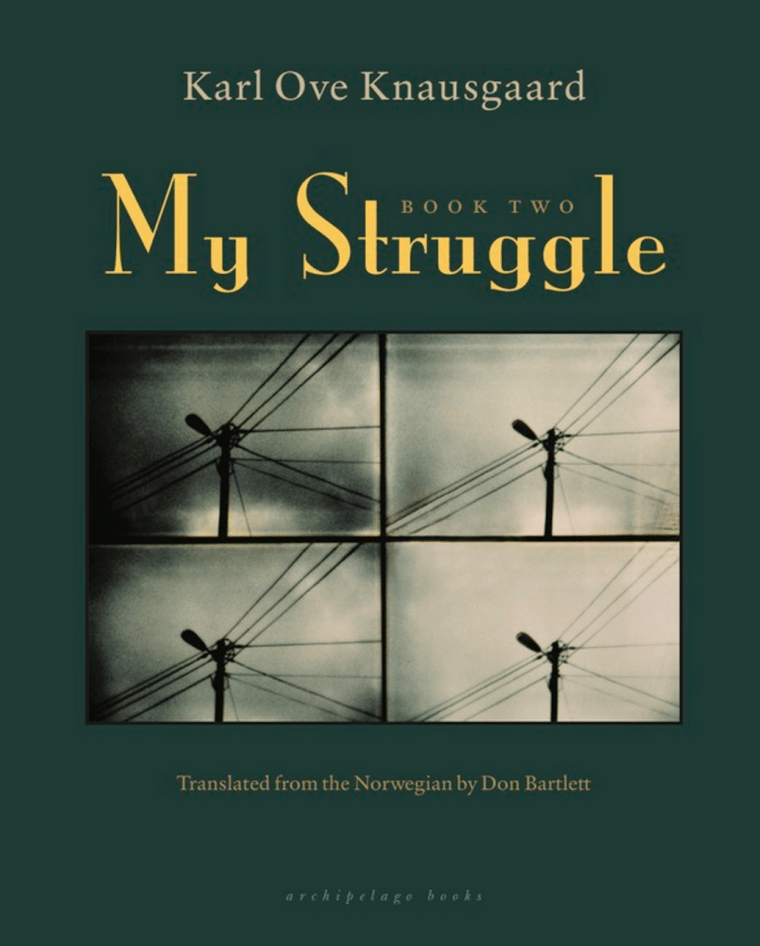 Knausgaard’s six-part memoir is like no other work of nonfiction on this list, but is perhaps the spiritual reincarnation of Proust’s Remembrance of Things Past. Both a coming of age work and a meditation upon daily life, the book opens up old wounds and searingly depicts the challenges of a life, imperfect like any other.
Knausgaard’s six-part memoir is like no other work of nonfiction on this list, but is perhaps the spiritual reincarnation of Proust’s Remembrance of Things Past. Both a coming of age work and a meditation upon daily life, the book opens up old wounds and searingly depicts the challenges of a life, imperfect like any other.
38. Stephen Greenblatt – The Swerve: How the World Became Modern (2011) 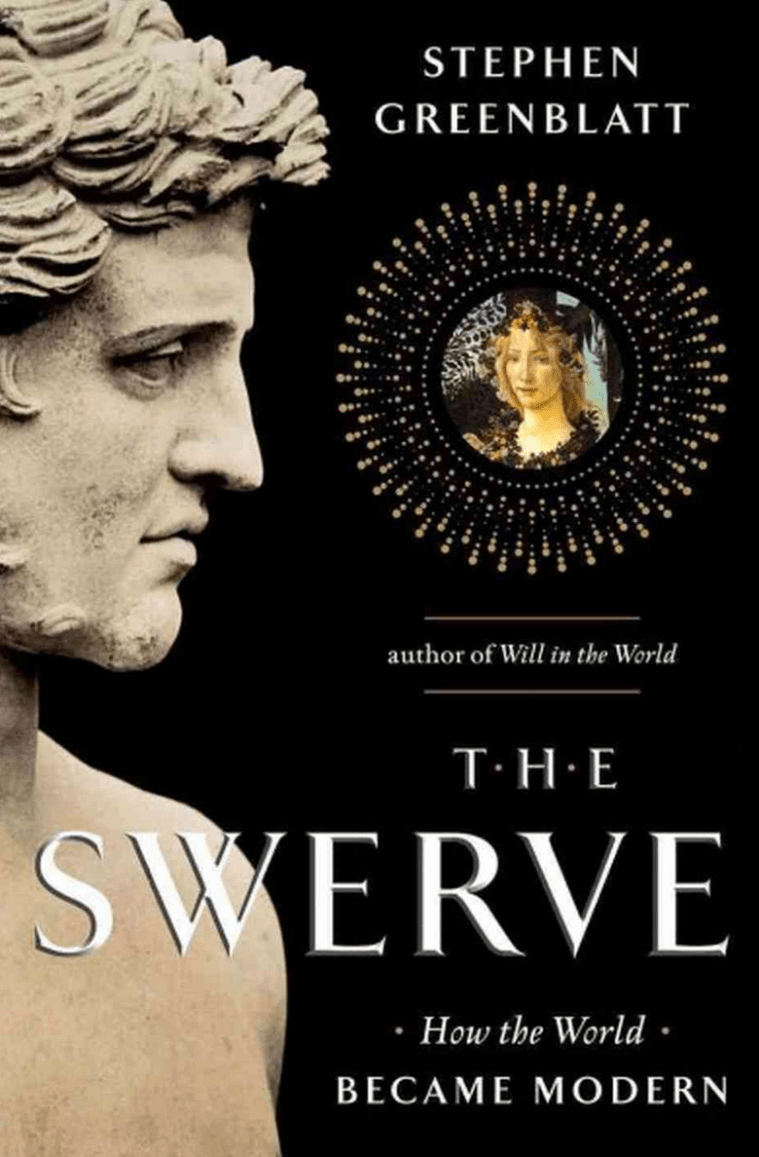 The Swerve looks at the re-emergence of an old work of poetry called “On The Nature of the Universe” by Roman philosopher Epicurus, and explains how it represented the Western World’s great shift towards Renaissance Humanism, and living for pleasure. But the book’s greatest pleasure is the specificity of detail; Greenblatt brings us back to the philosophical quarters of Rome and the magical theater of erudite monasteries in Italy.
The Swerve looks at the re-emergence of an old work of poetry called “On The Nature of the Universe” by Roman philosopher Epicurus, and explains how it represented the Western World’s great shift towards Renaissance Humanism, and living for pleasure. But the book’s greatest pleasure is the specificity of detail; Greenblatt brings us back to the philosophical quarters of Rome and the magical theater of erudite monasteries in Italy.
39. Daniel Kahneman – Thinking, Fast and Slow (2011) 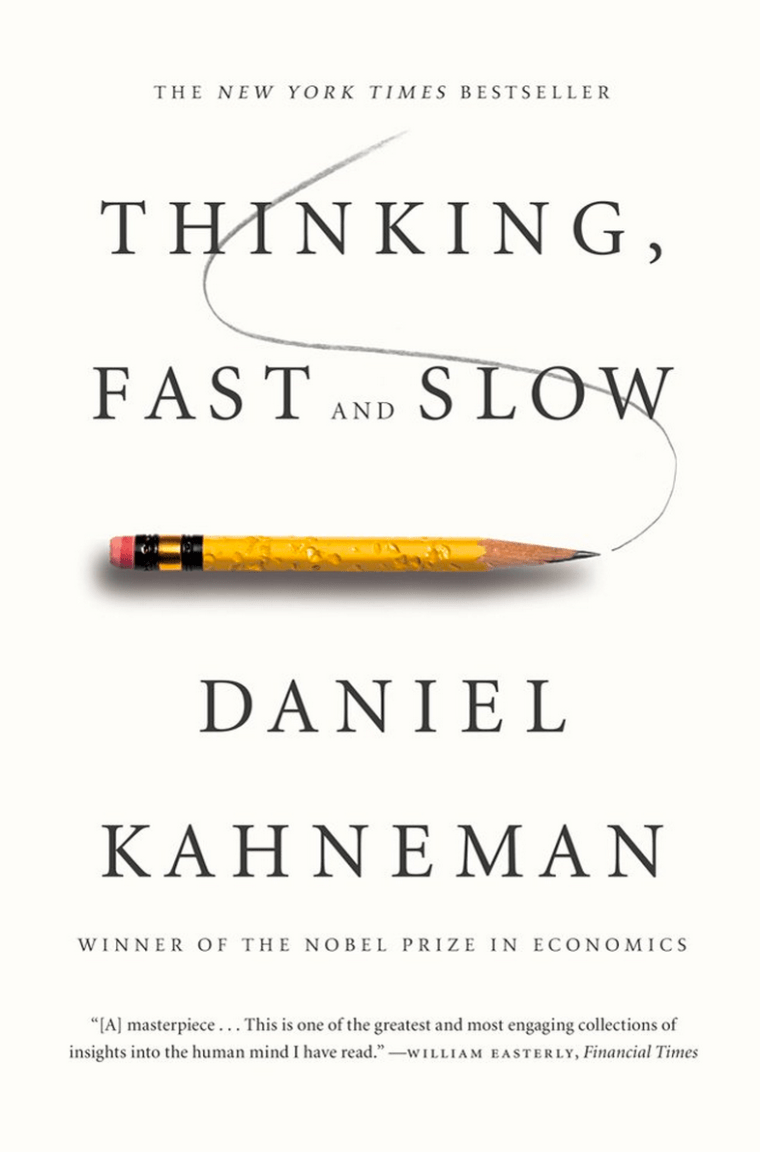 Kahneman, the 2002 Nobel Prize winner for economics, brings his lucid view of logic and rationalization to the fore with this book about the cognitive errors we make when making basic, daily decisions. The majority of the book deals with the difference between our immediate, semi-conscious mode of thinking, and our prolonged digestion of information over a longer period of time.
Kahneman, the 2002 Nobel Prize winner for economics, brings his lucid view of logic and rationalization to the fore with this book about the cognitive errors we make when making basic, daily decisions. The majority of the book deals with the difference between our immediate, semi-conscious mode of thinking, and our prolonged digestion of information over a longer period of time.
40. Susan Cain: Quiet: The Power of Introverts in a World That Can’t Stop Talking (2012) 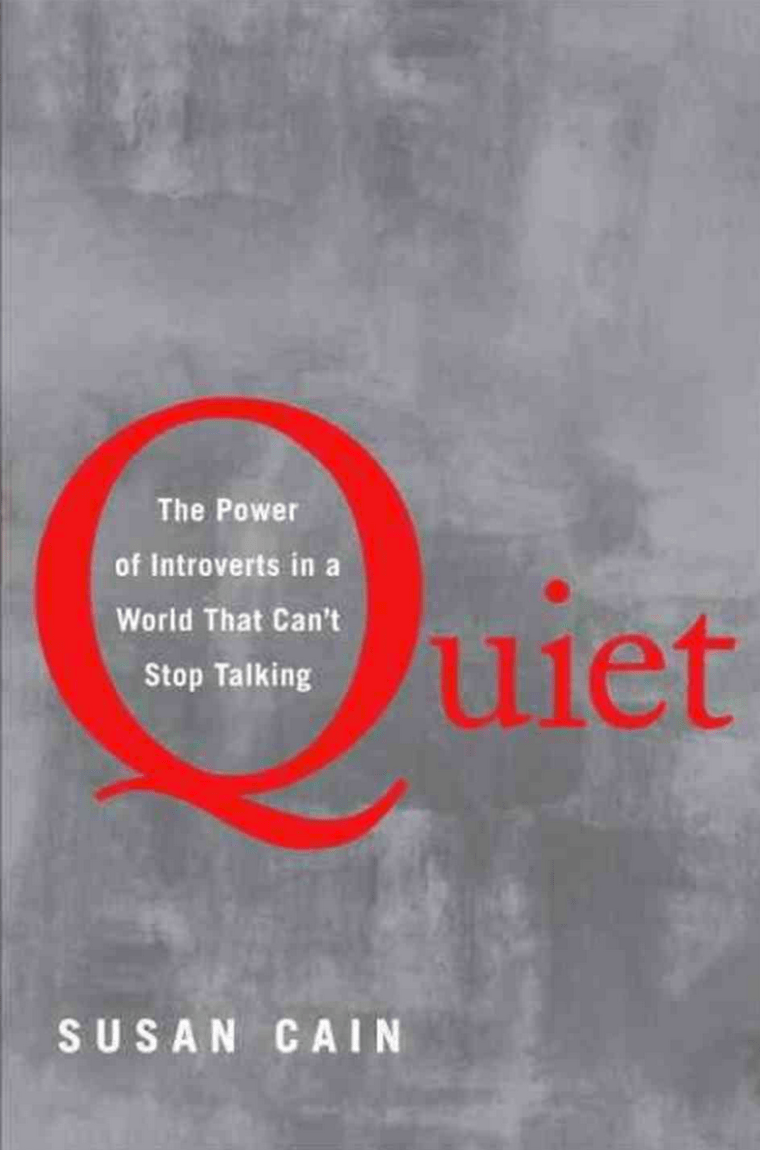 Pop sociology is perhaps the most significant sub-genre of nonfiction so far in the 21st century, and Cain’s book is a great reminder of how much talent is left in the dust by society’s inability to see the virtue in introverts. Cain argues that the worship of extroverts is putting the wrong people in power, while introverts are getting the short end of the stick in the political and business worlds.
Pop sociology is perhaps the most significant sub-genre of nonfiction so far in the 21st century, and Cain’s book is a great reminder of how much talent is left in the dust by society’s inability to see the virtue in introverts. Cain argues that the worship of extroverts is putting the wrong people in power, while introverts are getting the short end of the stick in the political and business worlds.
41. Nate Silver: The Signal and the Noise: Why So Many Predictions Fail–but Some Don’t (2012) 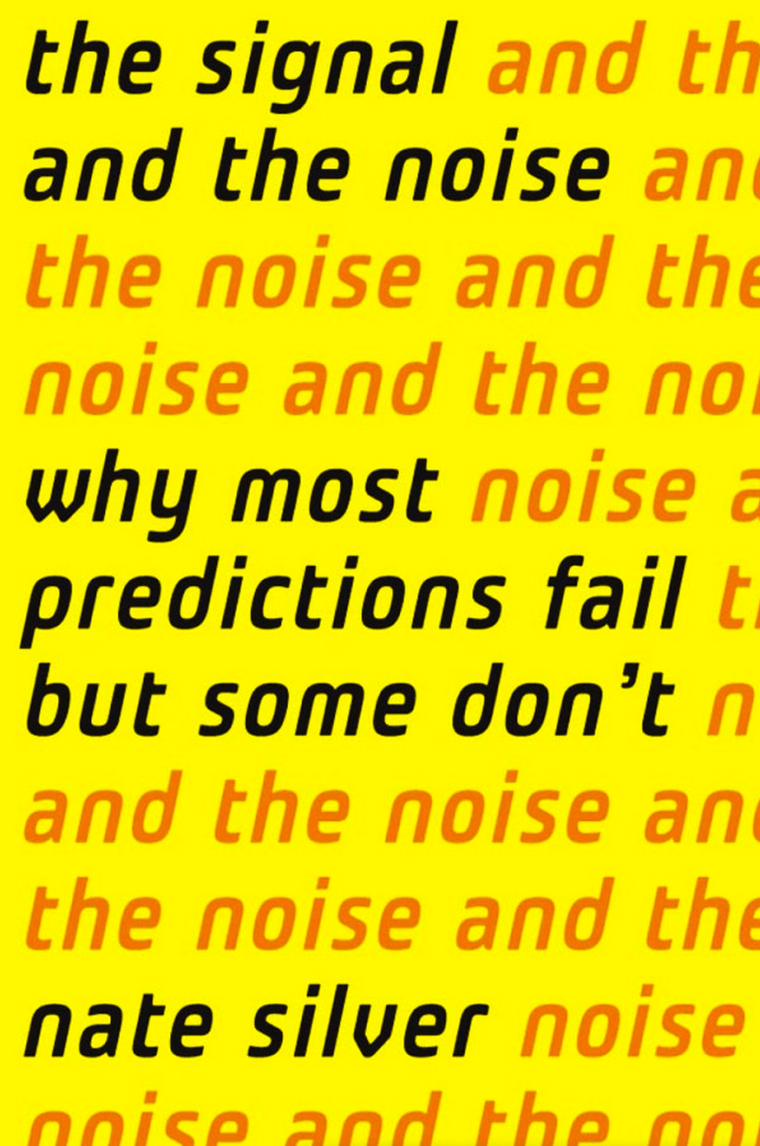 Nate Silver became a sort of oracle after predicting 49 out of 50 states in the 2012 election. The Signal and the Noise tacitly explains the methods for detecting patterns in statistics, and goes over the innumerable flaws one can easily fall into when decoding large swaths of numbers.
Nate Silver became a sort of oracle after predicting 49 out of 50 states in the 2012 election. The Signal and the Noise tacitly explains the methods for detecting patterns in statistics, and goes over the innumerable flaws one can easily fall into when decoding large swaths of numbers.
42. Susannah Cahalan – Brain on Fire (2012) 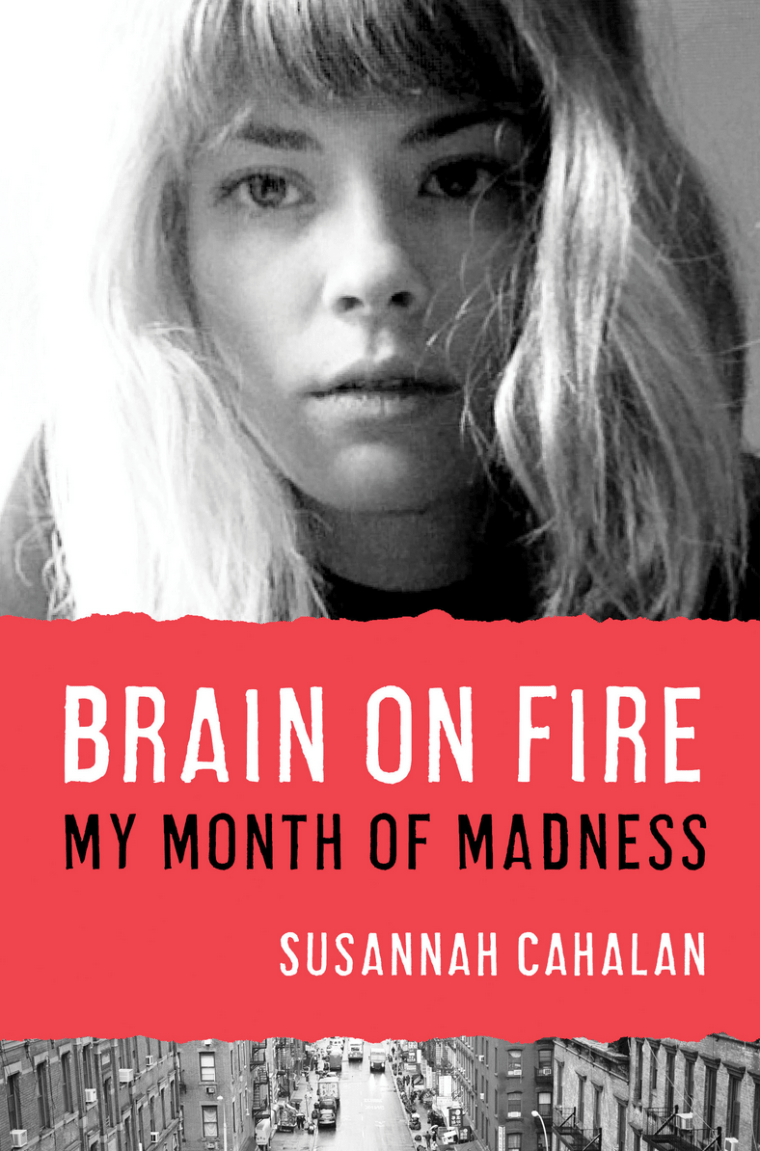 Calahan, a reporter for the NY Post, suddenly started feeling unusual symptoms that would culminate in her having a seizure. After a series of incorrect diagnoses, one doctor found out that she was suffering from a rare neurological disorder that had only been known for a few years. A wonderful, gripping memoir, Calahan addresses everything from the consequences of a high-stress lifestyle to the vicissitudes of psychological shame.
Calahan, a reporter for the NY Post, suddenly started feeling unusual symptoms that would culminate in her having a seizure. After a series of incorrect diagnoses, one doctor found out that she was suffering from a rare neurological disorder that had only been known for a few years. A wonderful, gripping memoir, Calahan addresses everything from the consequences of a high-stress lifestyle to the vicissitudes of psychological shame.
43. Katherine Boo – Behind the Beautiful Forevers (2012) 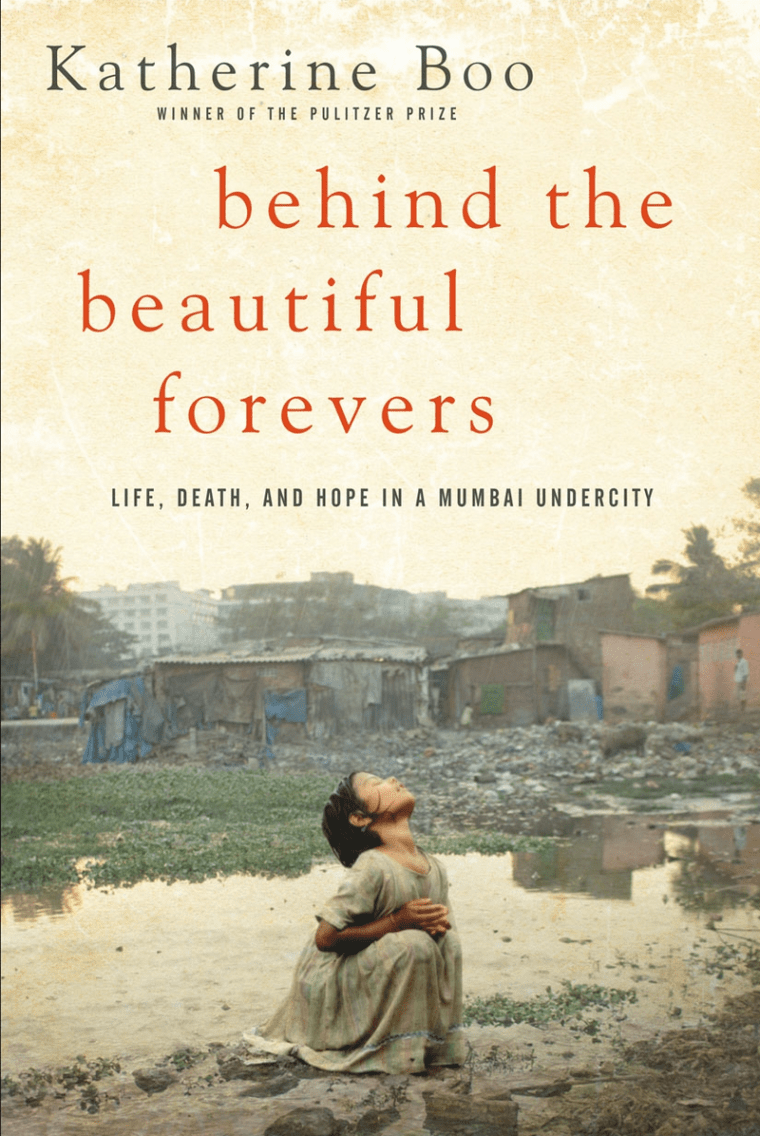 Boo succeeds in writing the truth about a place that most people will never truly know without going there in the first place. Annawadi is the name of the slum in Mumbai where Boo spent several years, profiling the collectors of rubbish who lived off the scraps of a burgeoning megacity. Both topical and poetic, the book is sure to change the perspective of those to read it.
Boo succeeds in writing the truth about a place that most people will never truly know without going there in the first place. Annawadi is the name of the slum in Mumbai where Boo spent several years, profiling the collectors of rubbish who lived off the scraps of a burgeoning megacity. Both topical and poetic, the book is sure to change the perspective of those to read it.
44. Cheryl Strayed – Wild: From Lost to Found on the Pacific Crest Trail (2012) 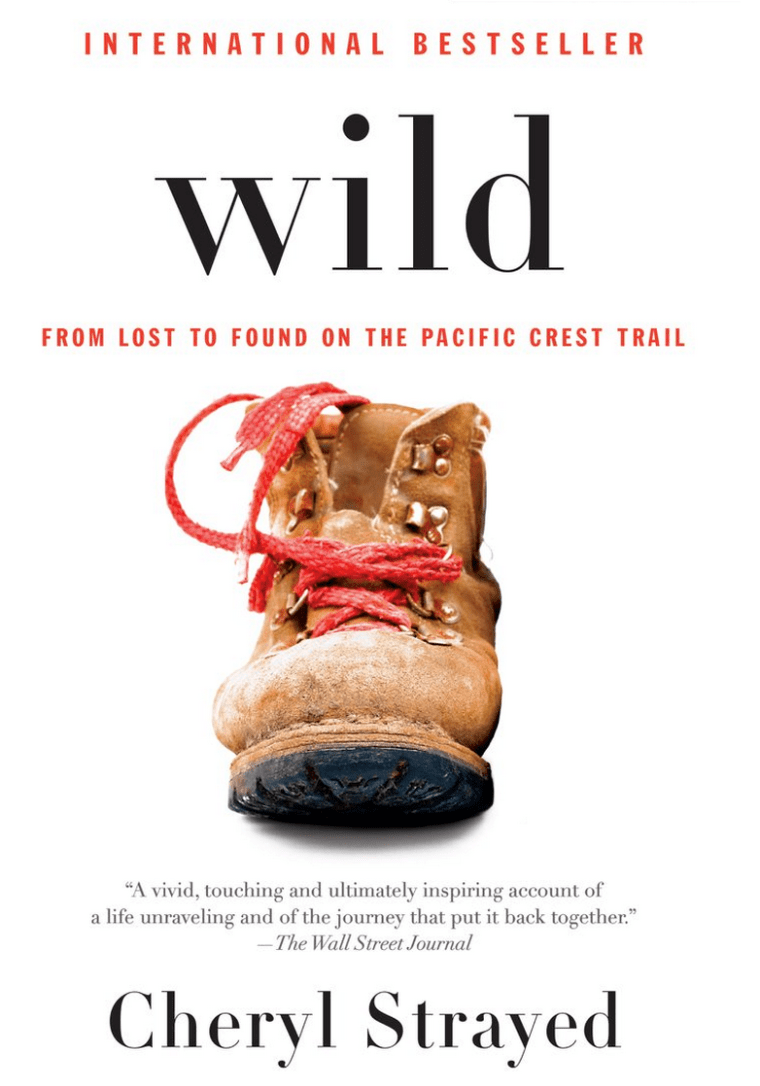 Strayed’s memoir-cum-film-adaptation is a wonderful memoir about making a bold change after a life of repeated mistakes and heartbreaks. Her journey along the daunting 1,100 mile trail is also a journey back into her troubled past, but her search for answers will resonate with anybody who has sought meaning from tragedy.
Strayed’s memoir-cum-film-adaptation is a wonderful memoir about making a bold change after a life of repeated mistakes and heartbreaks. Her journey along the daunting 1,100 mile trail is also a journey back into her troubled past, but her search for answers will resonate with anybody who has sought meaning from tragedy.
45. Alison Bechdel – Are you my Mother? (2012) 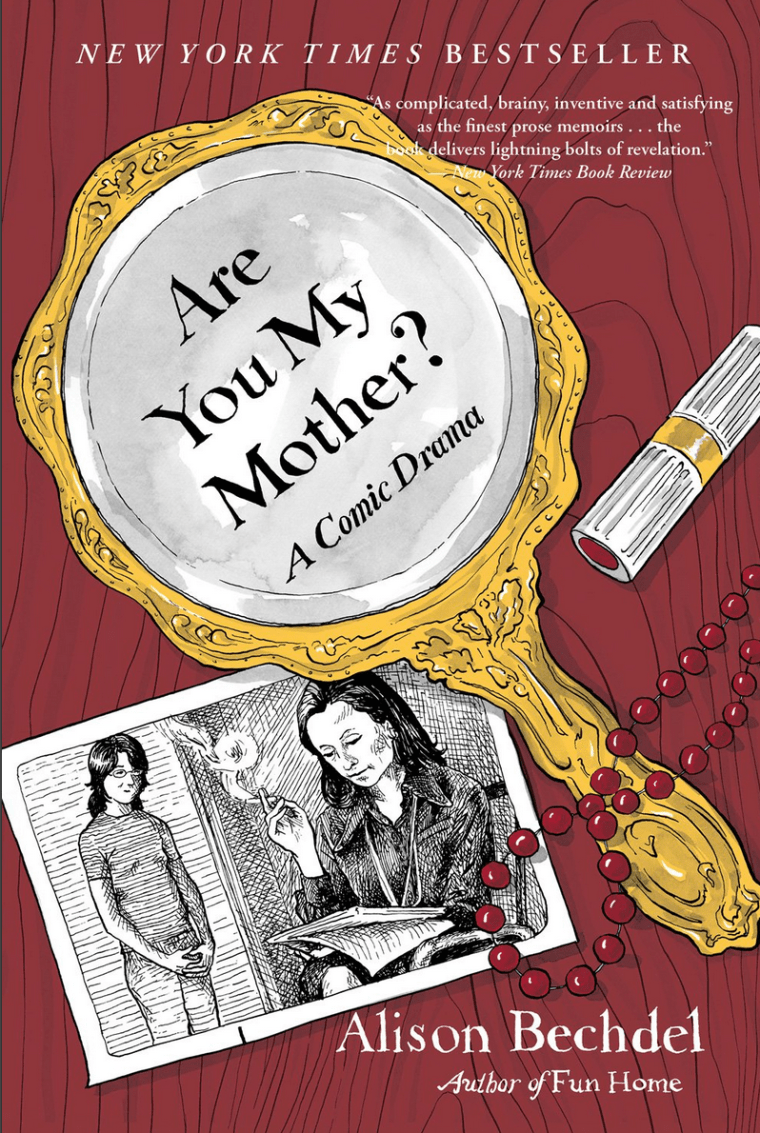 Bechdel, perhaps more famous for the Bechdel Test, combines the graphic novel medium with her own personal journey to craft something both unique and intimate. A companion to Fun Home, another memoir novel about her father, Are You My Mother? confronts depression and familial acceptance with great visual detail.
Bechdel, perhaps more famous for the Bechdel Test, combines the graphic novel medium with her own personal journey to craft something both unique and intimate. A companion to Fun Home, another memoir novel about her father, Are You My Mother? confronts depression and familial acceptance with great visual detail.
46. Lawrence Wright – Going Clear (2013) 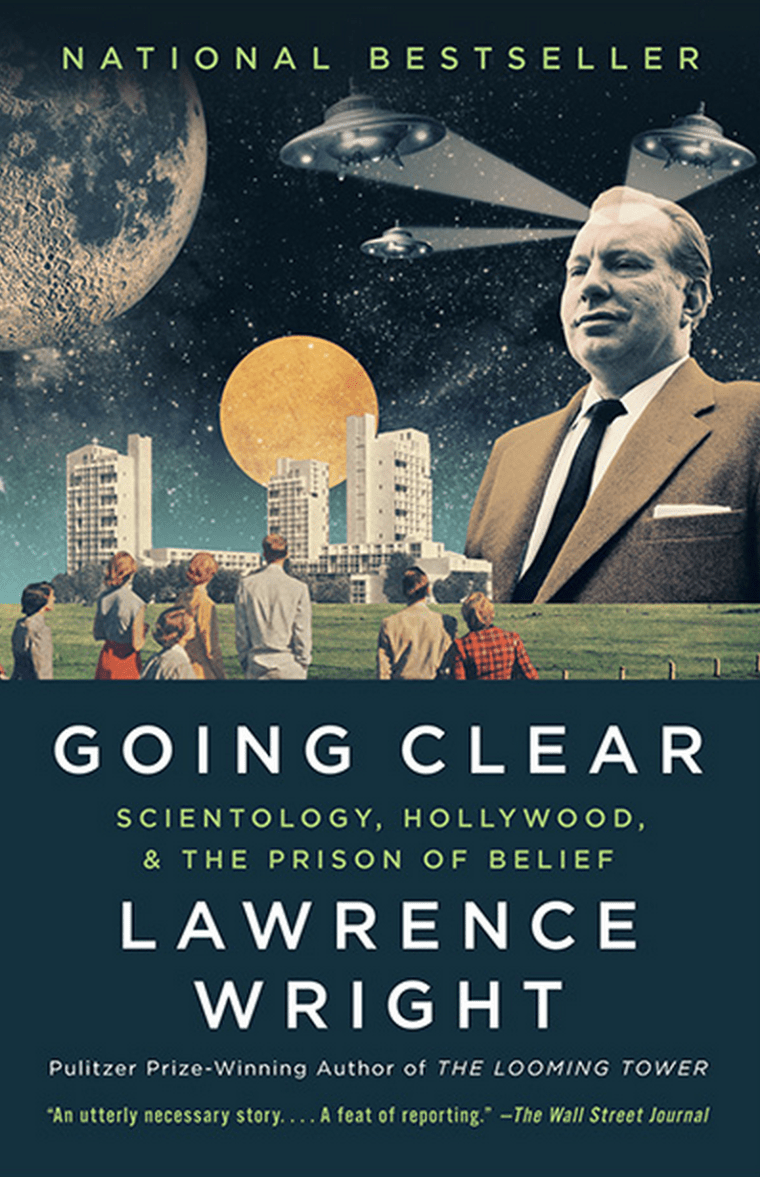 If HBO needs to hire 160 lawyers for something, you can probably guess it’s pretty inflammatory. Wright’s meticulous history and analysis of Scientology is as shocking as it is engrossing, a fearful indictment on one of America’s most puzzling religious institutions.
If HBO needs to hire 160 lawyers for something, you can probably guess it’s pretty inflammatory. Wright’s meticulous history and analysis of Scientology is as shocking as it is engrossing, a fearful indictment on one of America’s most puzzling religious institutions.
47. George Packer – The Unwinding: An Inner History of the New America (2013) 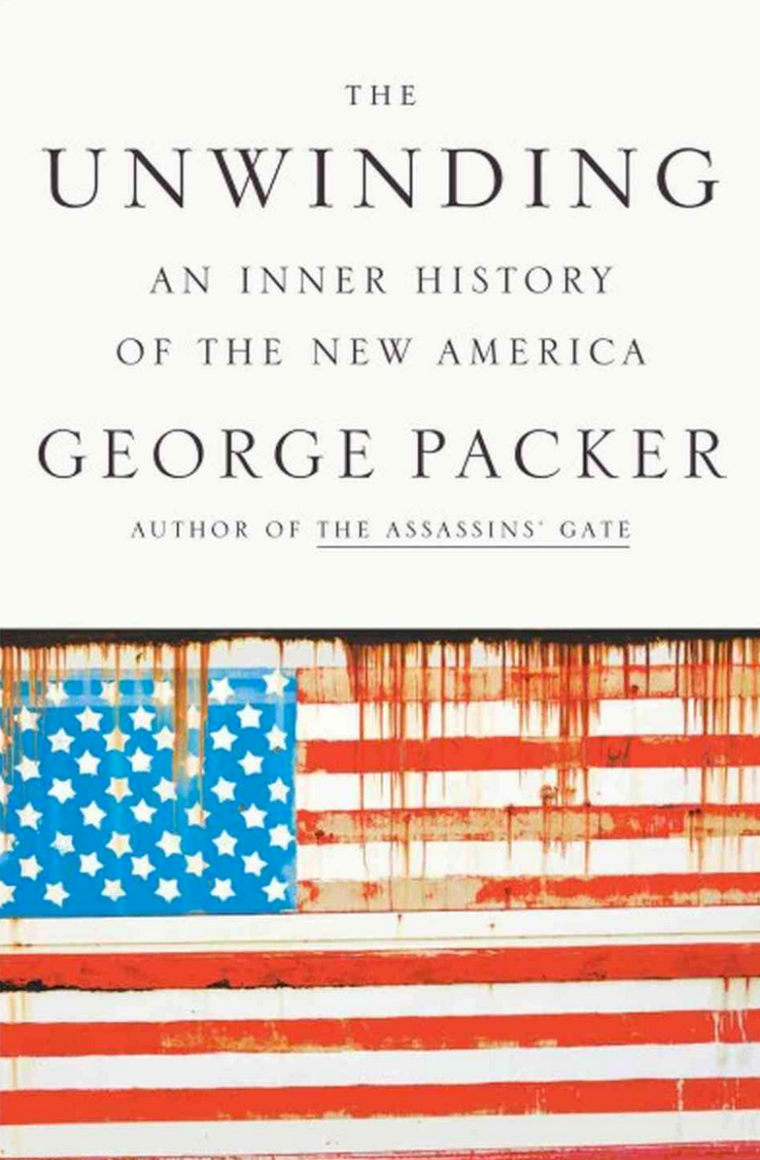 New Yorker staff writer George Packer pays Howard Zinn tribute with this wonderful tapestry of American life that focuses on the individual, rather than on the macroeconomic forces that govern the country. Packer looks at every facet of life, from farming to drug abuse to real estate failures, all while keeping us engaged with a human cast of characters.
New Yorker staff writer George Packer pays Howard Zinn tribute with this wonderful tapestry of American life that focuses on the individual, rather than on the macroeconomic forces that govern the country. Packer looks at every facet of life, from farming to drug abuse to real estate failures, all while keeping us engaged with a human cast of characters.
48. Thomas Piketty – Capital in the 21st Century (2013) 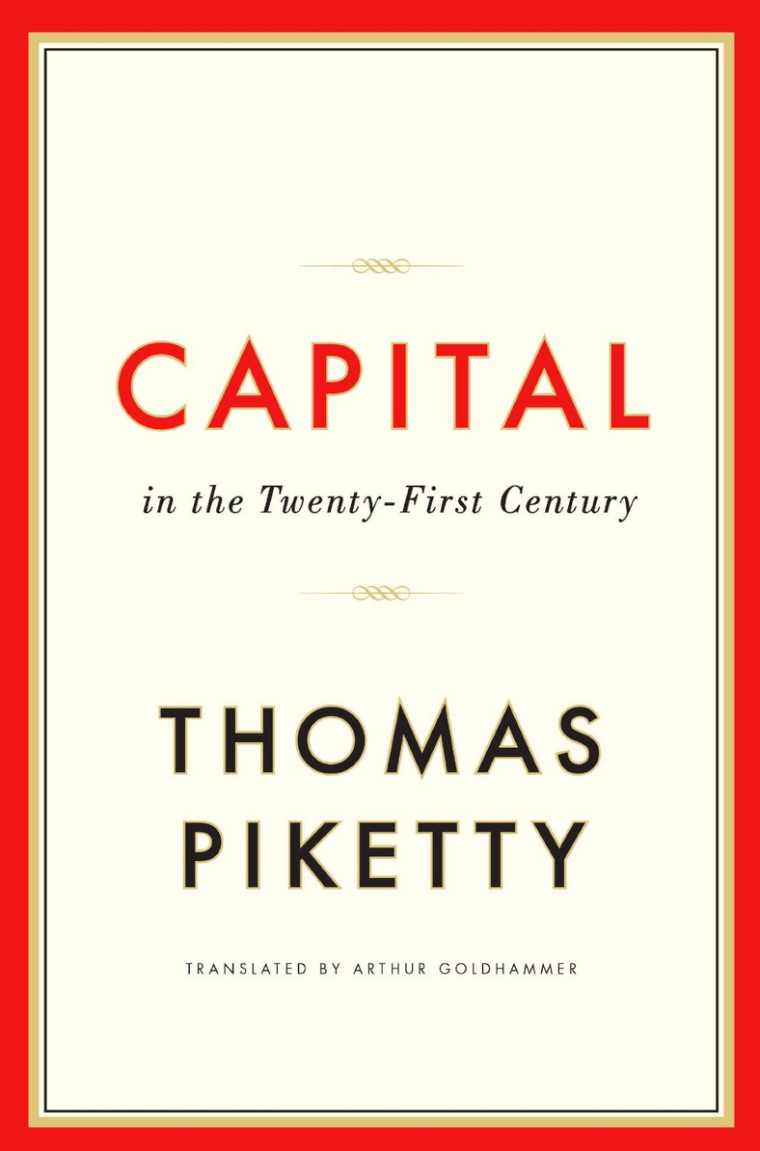 Piketty became an overnight rockstar with the publication of this 700 behemoth of a book about the steady rise of inequality over the centuries, a trend that he believes is likely to continue. The charm of this book is in Piketty’s ease of explanation; while complex, he uses literary examples such as Balzac to demonstrate the effects of capital on society.
Piketty became an overnight rockstar with the publication of this 700 behemoth of a book about the steady rise of inequality over the centuries, a trend that he believes is likely to continue. The charm of this book is in Piketty’s ease of explanation; while complex, he uses literary examples such as Balzac to demonstrate the effects of capital on society.
49. Roxane Gay – Bad Feminist (2014) 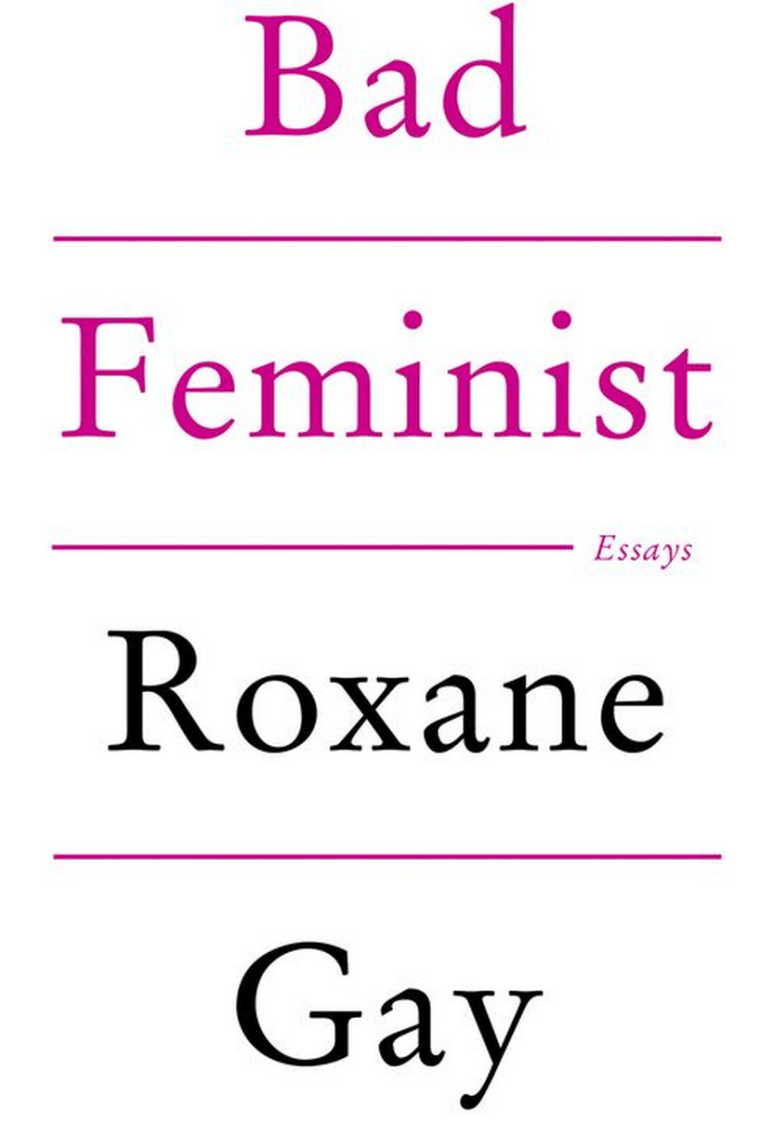 Bad Feminist is the brainchild of Gay, a wildly-talented writer and thinker who dismantles the traditional notions of feminism by making a refreshing, Socratic concession: that her view of gender politics has not only been imperfect, but “bad”. This humility wraps this collection of essays nicely in a bow. With subtle pacing and a keen eye for identifying the main issues with Feminism and other issues, Bad Feminist is a rallying cry disguised as pleasant conversation.
Bad Feminist is the brainchild of Gay, a wildly-talented writer and thinker who dismantles the traditional notions of feminism by making a refreshing, Socratic concession: that her view of gender politics has not only been imperfect, but “bad”. This humility wraps this collection of essays nicely in a bow. With subtle pacing and a keen eye for identifying the main issues with Feminism and other issues, Bad Feminist is a rallying cry disguised as pleasant conversation.
50. Evan Osnos – Age of Ambition: Chasing Fortune, Truth, and Faith in the New China (2014) 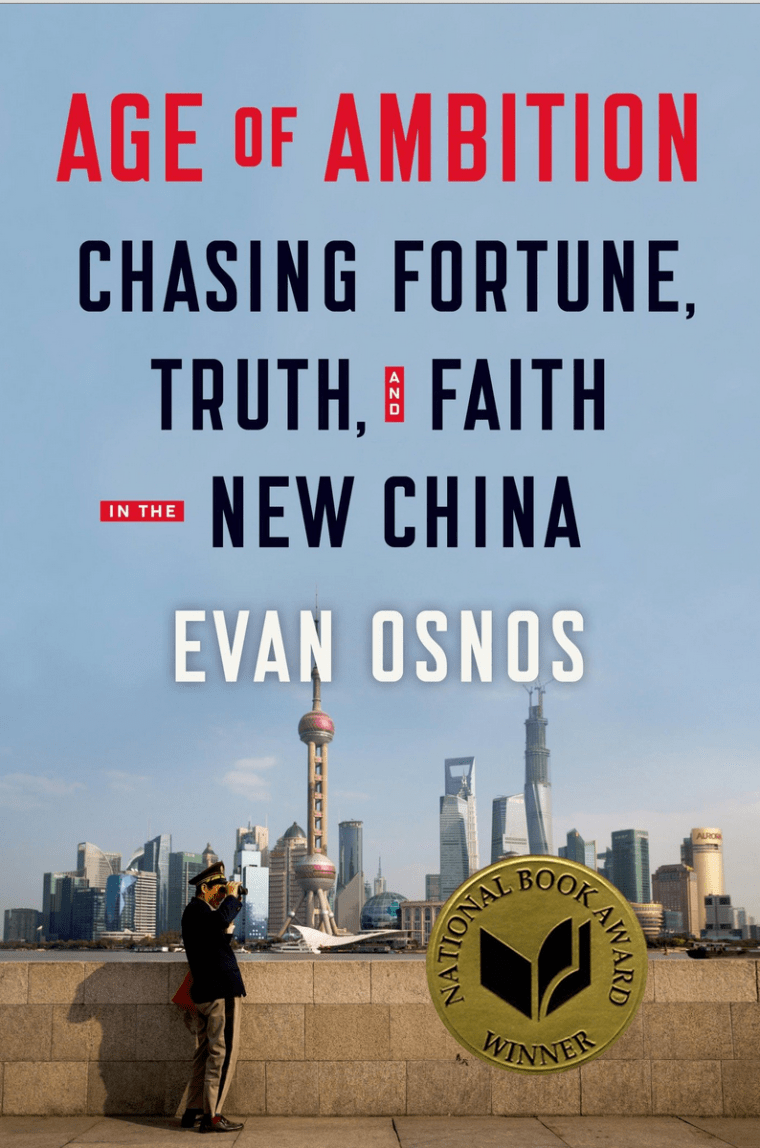 One of the most interesting stories of the 21st century has been the persistent growth of China, surpassing all but a few economies in as little as 25 years. Now, with the country’s rise hitting a snag, Osnos’ Age of Ambition is the perfect retrospective to a genuine economic miracle.
One of the most interesting stories of the 21st century has been the persistent growth of China, surpassing all but a few economies in as little as 25 years. Now, with the country’s rise hitting a snag, Osnos’ Age of Ambition is the perfect retrospective to a genuine economic miracle.
Reblogged this on restlessnessblog and commented:
An excellent list. Many of my faves are included as well as several on my to-read list.
Quiet and Behind the Beautiful Forevers are both excellent. Bill Bryson’s ‘A Short History of Nearly Everything’ should have been on this list; a must read. Mary Roach’s ‘Packing for Mars’ is another good one.
May I humbly submit that Timothy Egan’s “The Worst Hard TIme” deserves a prominent place on this list?
Thanks! This list reminded me of some great books I’ve read and gave me ideas for others to add to the list. Oh, and I second Timothy Lane Smith’s mention of “The Worst Hard Time.”
Very good choices
Thanks for sharing these recommendations. You’ve bumped up my reading list nicely for next month with this.
My top recommendation in nonfiction would be Tom Gallaghers recently released memoir Tara’s Halls.
An inspirational life journey that tells the story of growing up in Ireland in a large family, running a small farm. The book is really wonderfully written with an honest and deeply personal tone that I found very charming and relatable.
I read a lot of biographies and memoirs last year but this one really stuck with me.
http://thegallagherplace.us
Great choices! I especially love Random Family, Going Clear, Signal and the Noise, Thinking Fast and Slow, and Under the Banner of Heaven.
For biographies I would STRONGLY recommend Robert Caro’s Master of the Senate. It’s a biography of LBJ and it is one of the top 10 biographies I’ve ever read. The man is a true master. He spent the last 40+ years researching LBJ and writing his last few books about him. There are a few others and one more to go but if you’re just going to read one I’d go with Master of the Senate.
This was very helpful to me, Thanks so much for this list!
Awesome blogg you have here